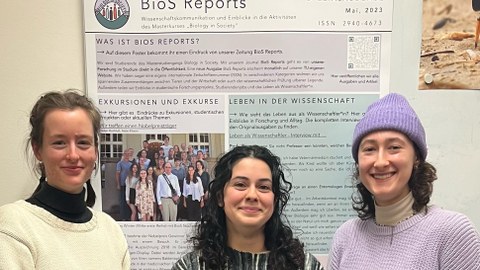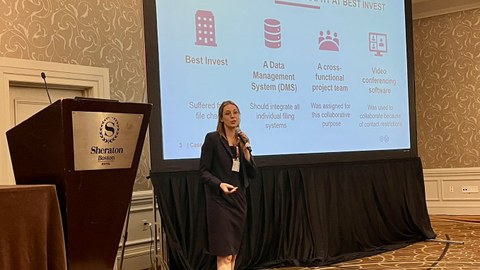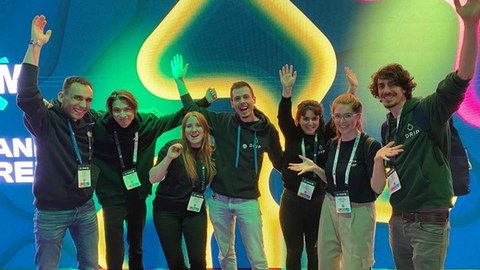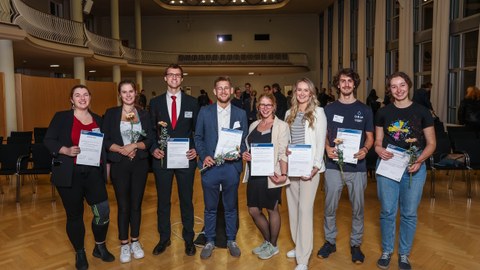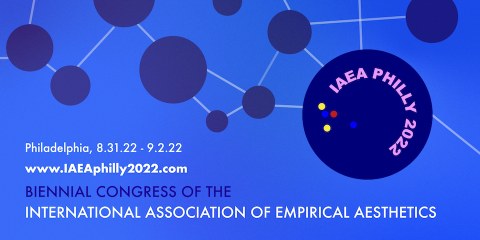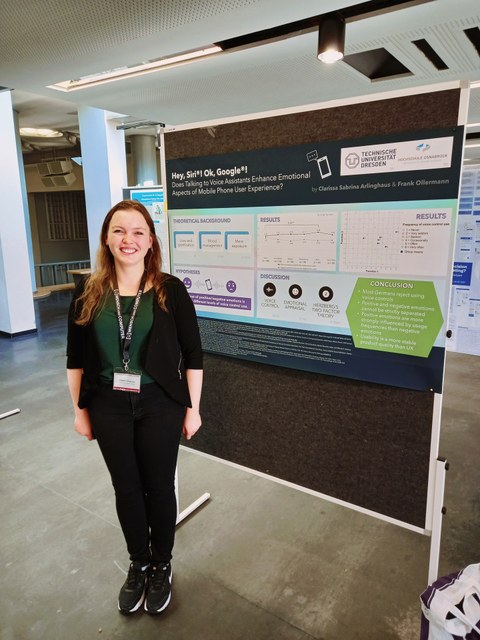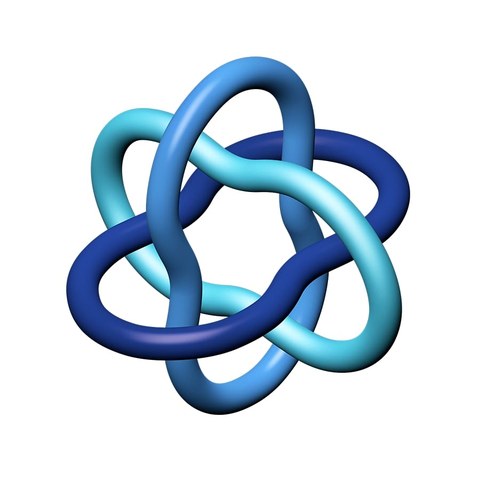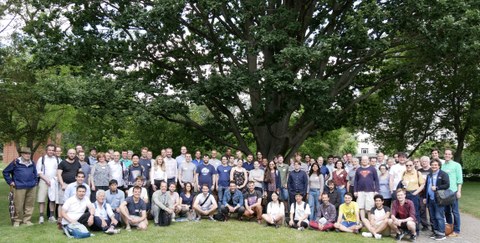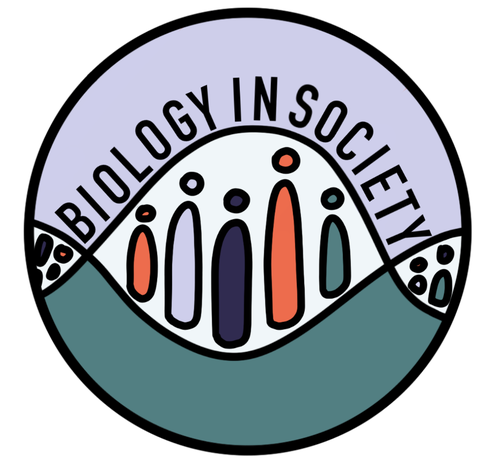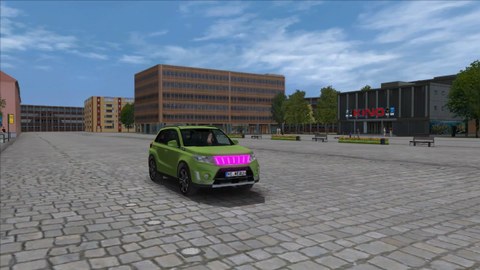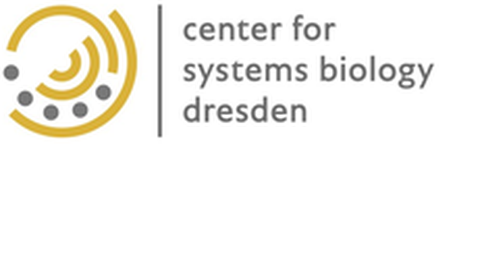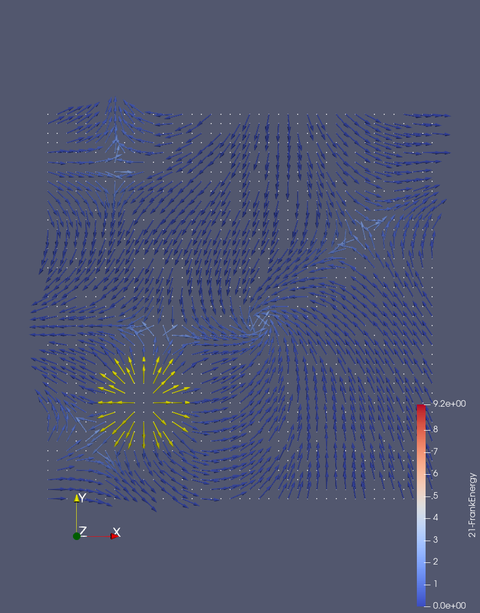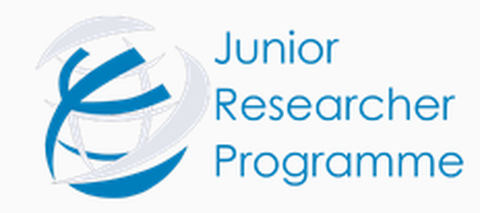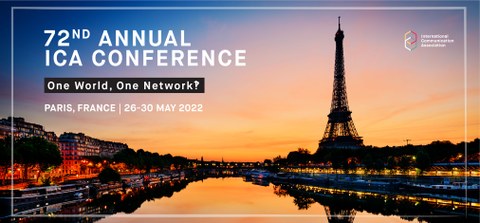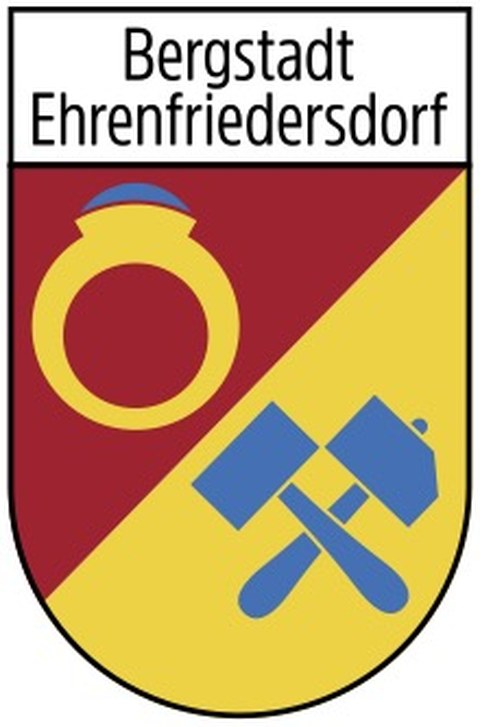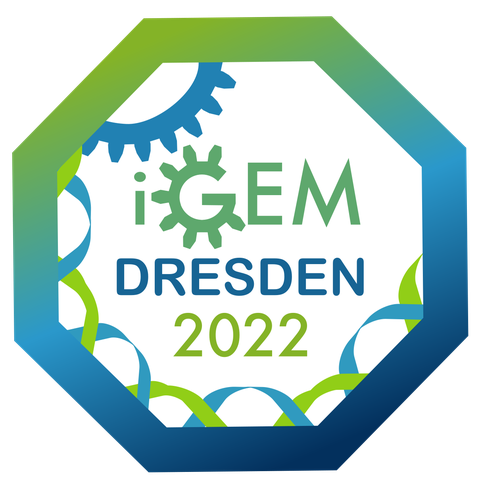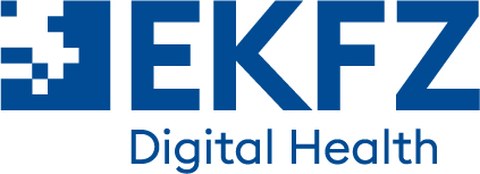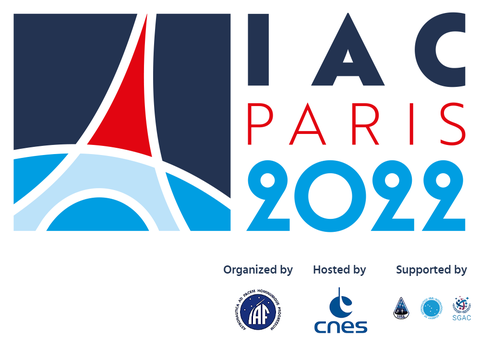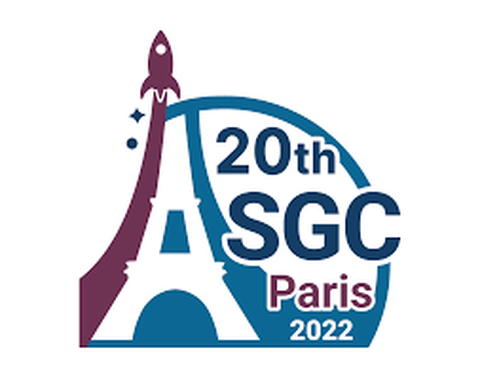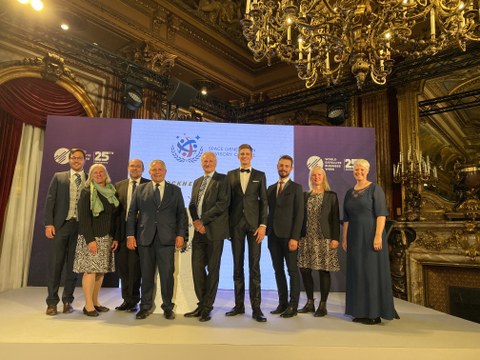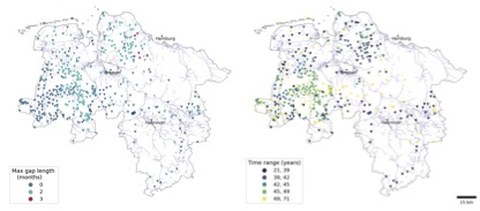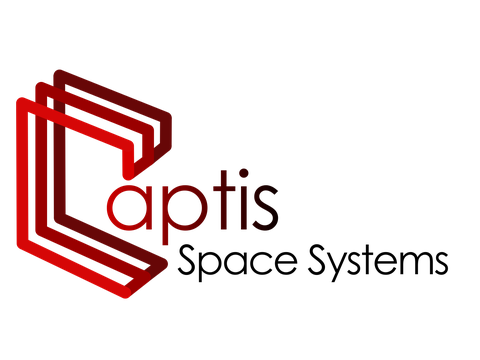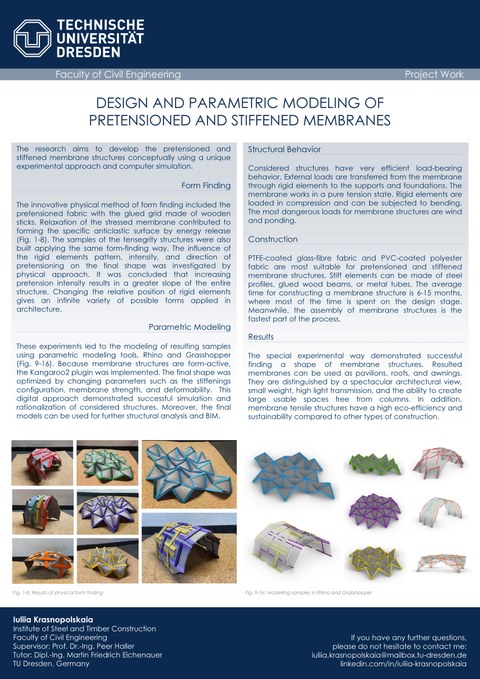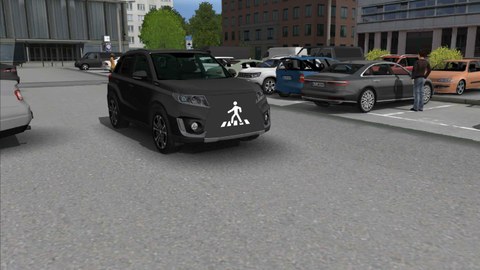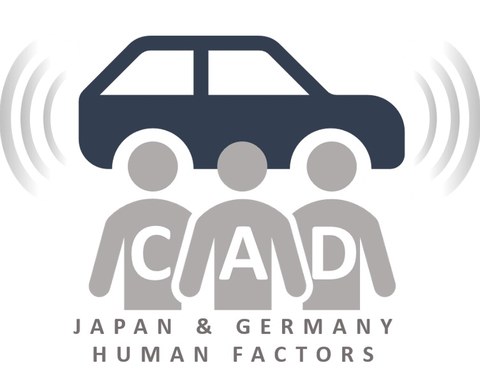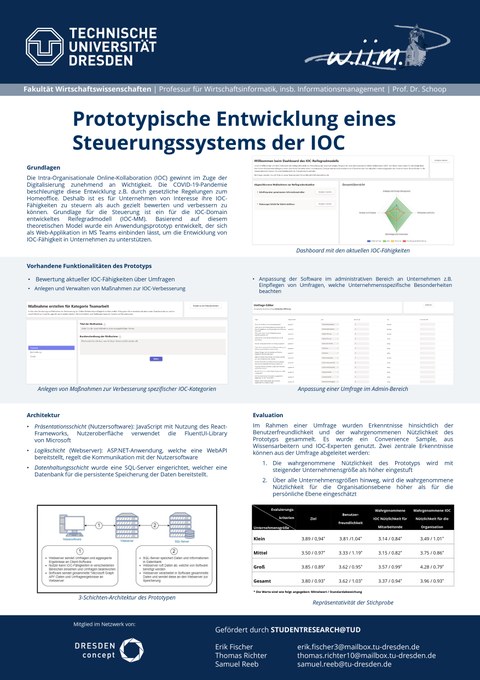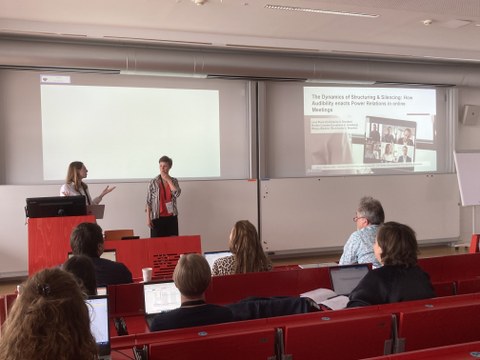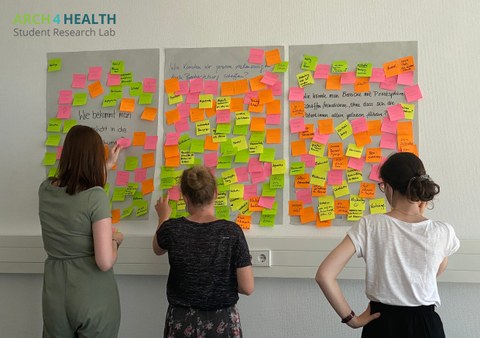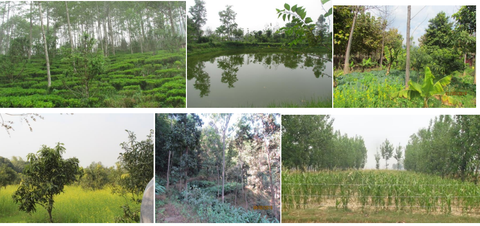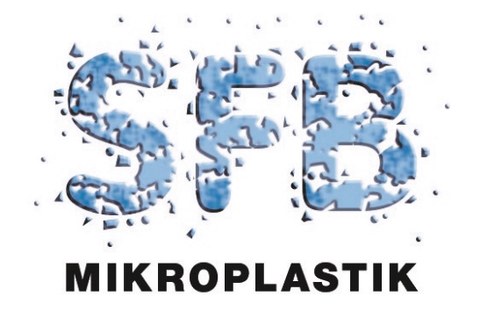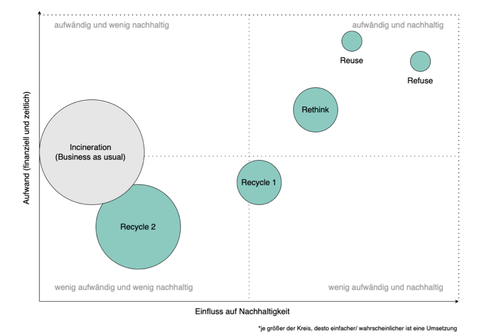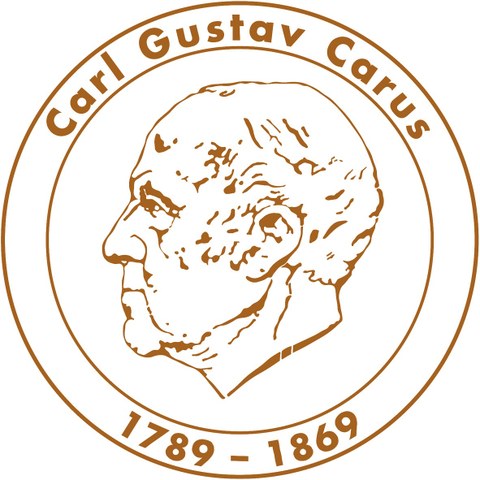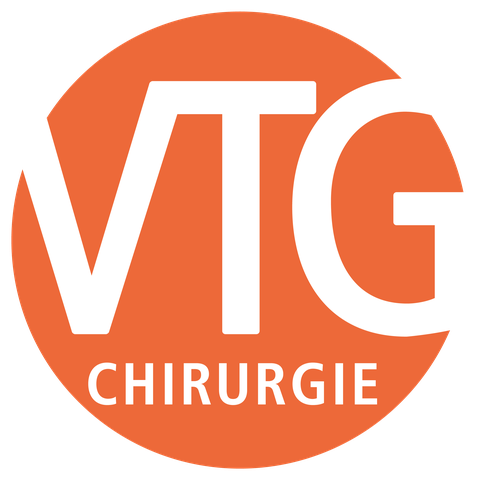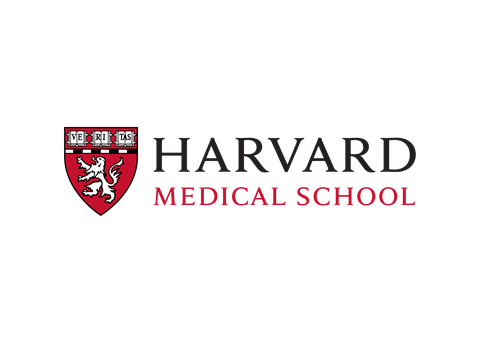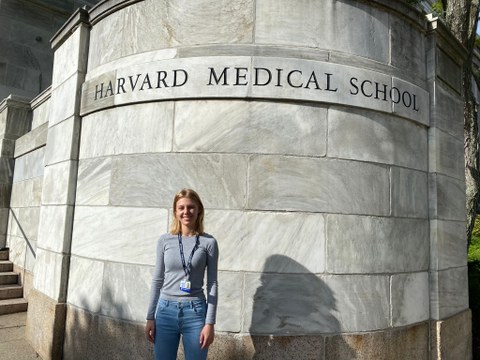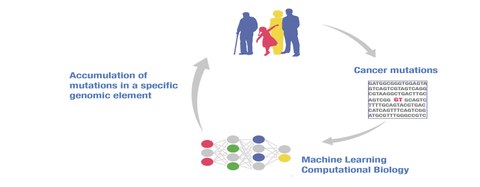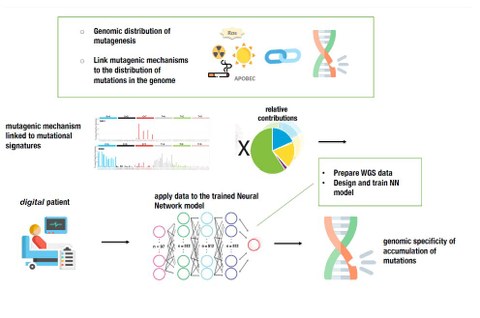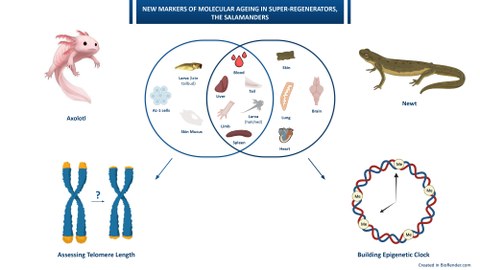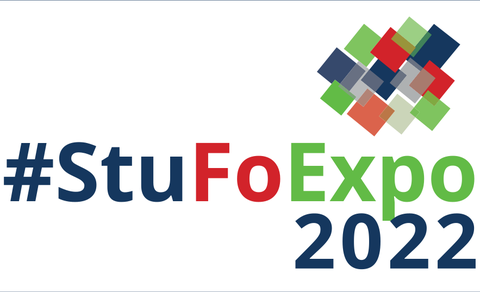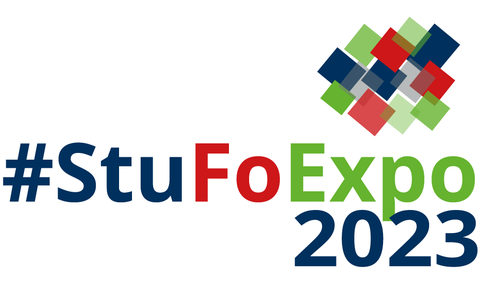Geförderte studentische Projekte
Studentische Projekte im Überblick
Mathematik und Naturwissenschaften
In ihrem Studium der Mathematik an der TU Dresden spezialisieren sich Frau Ketelsen und Herr Ziegler im Bereich der algebraischen Zahlentheorie. Die Teilnahme an der Summer School zum Thema quadratische Formen erweitert ihre Perspektive auf die Zahlentheorie und ermöglicht aktuelle Forschungsfragen kennenzulernen. Zudem besteht die Möglichkeit, schon zeitig im Studium in Kontakt mit anderen motivierten Forschenden und Studierenden zu kommen. Außerdem eignen sich die Studierenden Spezialwissen an, welches für kommende Forschungsarbeiten genutzt werden kann. Langfristig sollen die geknüpften Kontakte den bestehenden inter-universitären Austausch nach Antwerpen fördern.
Link zur Summer School
Ansprechpersonen: Margarete Ketelsen und Alexander Ziegler
Einrichtung: Fakultät Mathematik, Professur für Algebra
FOSTER-Förderlinie: STATA
"Unfolding emptiness: a cross-cultural view on minimalist architectures" war der Titel des Beitrags von Teresa Müller, mit dem sie ihre architekturpsychologische Forschung im Namen der TU Dresden auf der Konferenz der „International Association of Empirical Aesthetics (IAEA)“ vorstellte. Dieser Kongress bringt Forschende verschiedenster Disziplinen zusammen, die mit empirischen Methoden ästhetische Erfahrungen untersuchen, und fand Anfang September 2022 in Philadelphia statt. Es ist bisher eine einzigartige Veranstaltung im Feld der „Empirischen Ästhetik“.
Durch die von FOSTER bereitgestellten Fördermittel konnte Frau Müller die Teilnahme an dieser außergewöhnlichen Konferenz ermöglicht werden.
Link zur Konferenz: https://www.iaeaphilly2022.com
Ansprechperson: Teresa Müller
Einrichtung: Fakultät Psychologie
FOSTER-Förderlinie: STATA
Mit den zur Verfügung gestellten Mitteln konnte Frau Behnsen vier Monate lang an der Boston University an der Professur von John Porco forschen. Durch das Forschungspraktikum wurde der Ausbau von langfristig angelegten gemeinsamen Forschungsvorhaben zwischen den Lehrstühlen von Professor John Porco (Boston University) und Professor Bernd Plietker (TU Dresden) initiiert.
Das Absolvieren dieses Forschungspraktikums in einem internationalen Umfeld an einer anderen Universität ermöglichte Frau Behnsen persönlich zum einen das Erlernen neuer Arbeitstechniken und Strategien zur Lösung wissenschaftlicher Probleme und zum anderen fördert es den Kontakt mit neuen wissenschaftlichen Fachkulturen. Somit stellt es einen wichtigen Aspekt ihrer exzellenten wissenschaftlichen Ausbildung dar. Dieses Forschungspraktikum legt den Grundstein für ihre geplante Masterarbeit an der TU Dresden, sowie ihre spätere Promotion und ihren beruflichen Werdegang.
Ansprechpersonen: Antonia Behnsen, Prof. Bernd Plietker
Einrichtung: Organische Chemie
FOSTER-Förderlinie: STUDENTRESEARCH@TUD
In diesem Forschungsprojekt wurde untersucht, wie sich die Nutzungshäufigkeiten von Sprachsteuerungen auf emotionale Aspekte des Benutzungserlebens von Handys auswirken. Es handelt sich um eine UX-Studie aus psychologischer Perspektive.
Dabei stellte sich heraus, dass positive Emotionen stärker von Häufigkeiten beeinflusst werden als negative Emotionen. Davon ausgehend, dass positive Emotionen in Verbindung mit guter User Experience stehen und negative Emotionen auf schlecht gestalteter Usability beruhen, bestätigen die Ergebnisse Usabiltiy als stabilere Produkteigenschaft. Eine Gewöhnung an z.B. schlecht gestaltete Spracherkennung scheint kaum stattzufinden, sodass sich negative Emotionen auch bei höherer Nutzung auf das Benutzungserleben auswirken.
Bei gemeinsamer Betrachtung beider Emotionen lässt sich zwar auch eine Veränderung von negativen Emotionen erkennen, jedoch ist dies eher den positiven Emotionen geschuldet, die die negative Emotionen teilweise überschatten.
Die Förderung wurde zur Finanzierung einer Konferenzteilnahme eingesetzt. Die o.g. Ergebnisse wurden auf der Tagung „Mensch und Computer 2022“ als Paper, Videopräsentation und Poster vorgestellt. Dadurch wurden erste Schritte in Richtung einer wisschaftlichen Karriere gegangen und Sichtbarkeit, Austausch sowie Vernetzung mit Wissenschaftler:innen gefördert.
Kontaktperson: Clarissa Sabrina Arlinghaus
Einrichtung: Arbeits- und Organisationspsychologie
FOSTER-Förderlinie: Student Academic Travel Award | STATA
Den Studierenden Paula Berndt, Karlotta Meyn und Johanna Hirsch wurde am 18.11.22 und 19.11.22 die Teilnahme an der Fachtagung "Trauma ohne Ende - Perspektiven der Beratung von Menschen mit Diktaturerfahrungen" im Thüringer Landtag ermöglicht.
Zentrale Ideen des Besuchs der Fachtagung war die Vertiefung zu den inhaltlichen Schwerpunkten, die bereits Teil ihrer Masterarbeiten waren, sowie die Vernetzung und der Austausch mit Forschenden in diesem Bereich sowie mit Berater:innen von Menschen mit Diktaturerfahrung.
Die Fachvorträge der Referent:innen haben die Studierenden dazu angeregt, sich weiterhin mit den Folgen der Repressionserfarungen in der DDR auseinanderzusetzen. Sie eröffneten ihnen neue Themenkomplexe und Perspektiven für ihre weitere wissenschaftliche Arbeit.
Kontaktpersonen: Paula Berndt, Karlotta Meyn, Johanna Hirsch
Einrichtung: Behaviorale Epidemilogie, Informationen zum Repressionsprojekt
FOSTER-Förderlinie: Student Academic Travel Award | STATA
Mithilfe der beantragten Mittel wurde die Teilnahme an der Konferenz "Operator algebras, dynamics and groups - an ICM satellite conference" in Kopenhagen ermöglicht. Insbesondere sollten anfallende Reisekosten und Übernachtungskosten abgedeckt werden.
Im Rahmen seiner Bachelorarbeit beschäftigte Max Schmidt sich mich mit der Darstellung von C*-Algebren als Operatoralgebren über Hilberträumen. Dieses Wissen ermöglichte es ihm Random Walks auf dem Cayley Graphen diskreter Gruppen zu betrachten und eigene Rechnungen anzustellen. Während der Konferenz war es Max Schmidt möglich weiterführende Fragestellungen zu dieser Thematik kennenzulernen sowie bereits bestehende detaillierter zu verstehen und somit eigenständig bearbeiten zu können. Weiterhin konnte er aktuelle Forschungsthemen aus anderen Teilgebieten der Operatoralgebren kennenlernen, um sich langfristig einen besseren Überblick über das Themengebiet zu verschaffen und eigene Ideen zu entwickeln.
Durch die Möglichkeit des Kennenlernens junger und erfahrener Forscher, wurde es ihm auch möglich sein Kontakte für spätere Zusammenarbeit zu knüpfen und dadurch auch langfristig auf dem aktuellen Stand der Forschung zu bleiben.
Kontaktpersonen: Max Schmidt, Prof. Dr. Andreas Thom
Einrichtung: Fakultät Mathematik
FOSTER-Förderlinie: Student Academic Travel Award | STATA
In der Woche vom 20.06.2022 bis 24.06.2022 besuchte Alexander Ziegler eine Sommer Schule im Sophus Lie Zentrum in Nordjordeid, Norwegen. In drei Mini-Kursen und vielen Übungsaufgaben wurde er auf den aktuellen Stand der Forschung über reelle und tropische algebraische Geometrie gebracht. Unter anderem beinhaltete der eine Kurs zu tropischen Idealen, ein Werkzeug um geometrische Hyperflächen als eine Zerlegung des Raums in Polyeder zu verstehen. Im Mini-Kurs über Summen von Quadraten wurden mächtige Positivstellensätze eingeführt und in Zusammenhang gebracht mit einer wichtigen Klasse von Optimierungsproblemen. Der dritte Mini-Kurs befasste sich mit der Definition geeigneter Skalarprodukte auf dem Vektorraum der homogenen reellen Polynome in drei Variablen von gegebenem Grad d. Dies resultierte in einem Werkzeug um die Wahrscheinlichkeit zu berechnen, dass die Nullstellenmenge eines zufälligen homogenen Polynoms topologisch einem gewissen Arrangement von Kreisen entspricht.
Im Zuge der Sommer Schule bekam er die Möglichkeit sich mit Mathematiker:innen in meinem Alter auszutauschen und knüpfte auch Kontakt zu fortgeschrittenen Forschenden. So hatte der Kontakt zu Antonio Lerario aus Triest und Sabrina Pauli von der Universität Essen-Duisburg einen bleibenden Einfluss auf seine Masterarbeit. Das neu gewonnene Wissen half ihm jetzt, seine Forschungsinteressen mit Wissen zu untermauern und ein Promotionsprojekt zu suchen.
Kontaktpersonen: Alexander Ziegler, jun.-Prof. Mario Kummer
Einrichtung: Fakultät Mathematik
FOSTER-Förderlinie: Student Academic Travel Award | STATA
Legionellen sind ubiquitär vorkommende Umweltbakterien. In künstlichen Wasserinstallationen führen veränderte Wachstumsbedingungen zu Aufkeimung und Verbreitung des Bakteriums. Durch Inhalation legionellenhaltiger Aerosole sind diese in der Lage den Menschen zu infizieren und eine atypische Pneumonie auszulösen. Als besonders virulent gelten Stämme von L. pneumophila Serogruppe 1 mAb 3/1+. Dieser Virulenzmarker wird mit der Präsenz des lag-1 Gens assoziiert. Dieses Gen codiert eine Acetyltransferase, welche das Oberflächenprotein Lipopolysaccharid (LPS) modifiziert und somit eine gesteigerte Virulenz zur Folge hat. Primäres Ziel meiner Arbeit ist es eine qPCR, zum Nachweis des lag-1 Gens, zu entwickeln, sie nach internationalen Normen zu validieren und eine praktische Testung an Umwelt-und Patientenproben durchzuführen. Im Rahmen meiner Masterarbeit wurde die lag-1 PCR bereits erfolgreich für den qualitativen Nachweis von Legionellen etabliert. Mit dieser Förderung sollen die gewonnenen Ergebnisse publiziert werden. Zu einer vollständigen Bearbeitung zählen jedoch noch weiterführende Untersuchungen. Dies ist zum einen die Etablierung der quantitativen Analyse, zur Bestimmung der Legionellenkonzentration in Umweltproben, als auch eine Differenzierung zwischen pathogenen (lebenden) und toten Zellen (vPCR). Mit der lag-1 qPCR bzw. vPCR könnte ein molekularbiologisches Werkzeug zur besseren Identifizierung und Risikobewertung von Legionellen in Wassersystemen entwickelt werden.
Kontaktpersonen: Dr. rer. medic Markus Petzold, Sarah Uhle
Einrichtung: Professur für Modellbasierte Landschaftsökologie
FOSTER-Förderlinie: Studentische Forschungsaktivitäten an der TUD | STUDENTRESEARCH@TUD
Bestimmte Hirnregionen wie der Hippocampus im Gehirn erwachsener Säugetiere verfügen über adulte neurale Stamm-/Progenitorzellen (ANSPC), aus denen neue Neuronen entstehen und die der strukturellen und funktionellen Plastizität im erwachsenen Gehirn zugrunde liegen. Obwohl die Fähigkeit der ANSPCs im Gehirn von Säugetieren auf ein bestimmtes Hirnareal beschränkt ist und mit dem Alter abnimmt, besitzen andere Arten ANSPCs in mehreren Hirnregionen und behalten ihre neurogene Fähigkeit länger bei. Im Rahmen des Projekts von Frau Diana Zhilina und Dr. Maximina Yun soll untersucht werden, ob die Mechanismen, die der langfristigen Erhaltung von ANSPCs zugrunde liegen, bei den verschiedenen Spezies konserviert oder unterschiedlich sind. Sie konzentrieren sich auf LaminB1, eine Schlüsselkomponente der Kernlamina, die als kritischer epigenetischer Regulator für die langfristige Erhaltung von ANSPCs identifiziert wurde. Die Kernlamina spielt eine entscheidende Rolle bei der zelltypspezifischen Genregulierung, weshalb sie die Hypothese aufstellen, dass die unterschiedlichen Mengen an Laminen den Unterschieden in den neurogenen Fähigkeiten zugrunde liegen könnten. Sie werden die Expressionsmuster von Lamin B1 in ANSPCs und ihren Nachkommen bei verschiedenen Spezies wie Primaten, Nagetieren, Amphibien und Fischen untersuchen und mit ihren neurogenen Fähigkeiten im erwachsenen Gehirn korrelieren. Das Verständnis der molekularen Mechanismen, die die Grenzen der neurogenen Fähigkeiten verschiedener Spezies bestimmen, könnte einen Durchbruch für die Entwicklung therapeutischer Mittel zur Regeneration geschädigter Gehirne in der Zukunft bedeuten.
Kontaktpersonen: Dr. Maximina Yun, Diana Zhilina
Einrichtung: Center for Regenerative Therapies Dresden
FOSTER-Förderlinie: Studentische Forschungsaktivitäten an der TUD / STUDENTRESEARCH@TUD
Das Repressionsprojekt wurde Anfang 2022 aufgrund studentischem Forschungsinteresse ins Leben gerufen und wird nun mit einen zweiten Erhebungszeitraum fortgeführt.
Die Studie mit dem Namen „Psychische Folgen von Repressionserfahrungen in der DDR“ hat zum Ziel, in einer für die Bevölkerung von Dresden im Jahre 1986 hinsichtlich Alter und Geschlecht repräsentativen Befragung die Häufigkeit von Repressionen in der DDR und Prävalenzen psychischer Auffälligkeiten zu erheben und deren Zusammenhang zu erforschen. Ein weitere Forschungsschwerpunkt wird in einer Untersuchung des Zusammenhangs zwischen Repressionserfahrungen und Symptomen der Verbitterungsstörung liegen. Dafür wird eine zufällig ausgewählte und in Alter und Geschlecht repräsentative Stichprobe per Post angeschrieben und um Teilnahme gebeten.
Karlotta Meyn absolviert im Rahmen der Erhebung ihr Forschungspraktikum und wird im Anschluss die Ergebnisse der Studie in ihrer Masterarbeit veröffentlichen. Weitere Veröffentlichungen in einschlägigen Fachjournalen sollen erfolgen.
FORSTER übernimmt die Druck- und Portokosten und ermöglicht so eine schelle Realisierung dieses studentischen Forschungsprojektes.
Weitere Informationen zum Repressionsprojekt finden Sie hier.
Ansprechpersonen: Karlotta Meyn, Dr. rer. nat. Judith Schäfer
Einrichtung: Institut für klinische Psychologie und Psychotherapie, Professur Behaviorale Epidemilogie
FOSTER-Förderlinie: Studentische Forschungsaktivitäten an der TUD | STUDENTRESEARCH@TUD
BioSReports ist ein studierendengeführtes Journal, welches einen Beitrag zum Transfer wissenschaftlicher Arbeit in die Gesellschaft leistet.
Dabei werden die folgenden Ziele verfolgt:
- Verbindung Forschung und Lehre: Darstellung der Ergebnisse originaler studentischer Forschung, erarbeitet im Rahmen von Modulen des Master-Studiengangs Biology in Society (Lehre)
- Verbindung Lehre und Wissenschaftskomunikation: Populärwissenschaftliche Darstellung aktueller biologischer Themen ('facts checks')
- Lehre: Peer to peer Kurs 'Wissen zur allgemeinverständlichen Textaufbereitung
- Lehre und Berufschancen: Einblick in Editorielle Arbeit wissenschaftlicher Zeitschriften (unter Anleitung von Prof. Reinhardt)
- Verbindung Lehre & Wissenschaftskomunikation: Außenwirkung der TU Dresden
Nach der Einrichtungsphase soll das Journal langfristig existieren. Die editorielle Arbeit soll dann von Studierenden im Rahmen des Studiums im Studienganges Biology in Society unter Anleitung von Prof. Reinhardt erfolgen (skill: Editorial Journal Assistant).
Weitere Informationen zum Projekt finden Sie hier.
Ansprechpersonen: Nele Kheim, Helen Rothfuß
Einrichtung: Fakultät Biologie
FOSTER-Förderlinie: Studentische Forschungsaktivitäten an der TUD | STUDENTRESEARCH@TUD
Bereits im Rahmen der Erstellung seiner Bachelorarbeit zum Thema "Duality of Riesz* Homomorphisms and Interval Preserving Operators in Ordered Vector Spaces", war Florian Boisen in ein Forschungsprojekt eingebunden, welches in Kooperation mit der Universität Leiden durchgeführt wurde. Zudem erhielt er bereits die Möglichkeit, erste Forschungsergebnisse vor einem Fachpublikum zu präsentieren und sich mit Wissenschaftler:innen seines Faches in einen intensiven Austausch zu begeben.
Um weitere wertvolle Einblicke in die aktuelle Forschung auf dem Gebiet der geordneten Vektorräume und der positiven Operatoren zu erhalten, nimmt Herr Boisen an der wichtigsten Konferenz seines Forschungsgebietes, der Positivitiy XI teil. Diese wird vom 10. bis zum 14. Juli 2023 in der slowenischen Hauptstadt Ljubljana stattfinden.
Die von FOSTER genehmigten Mittel ermöglichen Herrn Boisen die Teilnahme an der Konferenz, auf welcher er sein bestehendes Netzwerk erweitern und Inspirationen für seinen weiteren Forschungsweg sammeln möchte.
Ansprechperson: Florian Boisen
Einrichtung: Institut für Analysis
FOSTER-Förderlinie: Teilnahme an Tagungen und Kongressen | STATA (Student Academic Travel Award)
Auf seinem bisherigen akademischen Weg fokussierte sich Herr Messerschmidt vor allem auf die Forschung im Kontext der biomedizinischen Bildgebung mit der optischen Kohärenztomographie. Die Ergebnisse seiner Masterarbeit sowie der Erhalt eines EFS-Promotionsstipendiums ermutigten ihn dazu, an der diesjährigen 11. International Graduate Summer Scholl Biophotonics `23 teilzunehmen. Diese findet vom 10. bis zum 17. Juni 2023 im schwedischen Backafallsbyn statt und bietet sehr gute Weiterbildungs- und Netzwerkmöglichkeiten im Bereich der biomedizinischen Bildgebung. Zudem wird sich Herr Messerschmidt mit einem eigenen Knferenzbeitrag beteiligen, sowie weitere spannende Vorträge, Workshops und Diskussionsrunden besuchen.
Die von FOSTER getragene Finanzierung unterstützt Herrn Messerschmidt dabei vor allem in Bezug auf die Teilnahmegebühren der Konferenz, in der Reisekostenübernahme sowie bei Druckkosten für das anzufertigende Poster für seinen Konferenzbeitrag.
Ansprechperson: Carl Messerschmidt
Einrichtung: Institut für angewandte Physik
FOSTER-Förderlinie: Teilnahme an Tagungen und Kongressen | Stata (Student Academic Travel Award)
Im Zuge der COVID-19-Pandemie sind Verschwörungsmythen und Personen, die an diese glauben in der Gesellschaft wesentlich präsenter geworden. Verschiedenen wissenschaftlichen Publikationen zufolge hat der Glaube an Verschwörungsmythen einen negativen Einfluss auf die Bereitschaft zum Tragen von Masken, zum Social Distancing or zum Impfen gegen das Virus. Zusätzlich scheinen Menschen, die an Verschwörunsgmythen glauben, weniger Vertrauen in die Regierung, Journalisten, Wissenschaft und Corona-Maßnahmen zu zeigen. Die Pandemie flacht inzwischen zwar sowohl statistisch als auch in der gesellschaftlichen Präsenz ab, Verschwörungsglauben bleibt jedoch.
In diesem Zusammenhang ist es das Ziel von Herrn Richter, das Glaubenssystem von Menschen, die an Verschwörungsmythen glauben, zu erfassen und zu visualisieren. Dazu möchte er im Rahmen eines von ihm konzipierten Triadentests an einer Stichprobe aus zwei Gruppen (Menschen, die sich für und gegen eine Impfung entschieden haben) testen, ob sich diese Personen in ihren Glaubenssystemen unterscheiden und wie diese sich gegenseitig wahrnehmen. Die Ergebnisse seiner Studie sollen zu besseren Konfliktlösungsstrategien sowie zu einem tieferen Verständnis der Entstehung von Verschwörungsmythen beitragen.
Ansprechpartner: Franz Richter
Einrichtung: Professur für Methoden der Psychologie und kognitive Modellierung
FOSTER-Förderlinie: Studentische Forschungsaktivitäten an der TU Dresden | STUDENTRESEARCH@TUD
Essstörungen (ED) werden trotz hoher Prävalenz häufig nicht korrekt identifiziert (Currin et al.,2007), was für Betroffene schwerwiegende Folgen haben kann. Das individuelle Störungsbild, insbesondere wenn dieses nicht dem Stereotyp entspricht, beeinflusst maßgeblich die Diagnosegenauigkeit (Veillette et al.,2018).
Auch Merkmale von Kliniker:innen moderieren die korrekte Diagnosevergabe (Worsfold & Sheffield,2021). Kognitiven Charakteristika, wie Need for Cognition (NfC), ist dabei ein potenzieller Einfluss zuzuschreiben, welcher bislang wenig untersucht wurde. NfC ist die stabile Disposition einer Person zur Beschäftigung mit und Freude an anspruchsvoller geistiger Betätigung. Menschen mit hohem NfC zeigen bessere Leistungen in kognitiven Aufgaben und denken intensiver über Informationen nach (Cacioppo et al.,1996).
Ziel dieses Forschungsvorhabens ist, im Rahmen einer Pilotstudie zu Einflussfaktoren auf die klinische Urteilsfindung bei ED, den Einfluss von NfC bei Kliniker:innen zu untersuchen. Es soll untersucht werden, ob Kliniker:innen mit hohem NfC, v.a. bei atypischen ED-Störungsbildern, besser diagnostizieren. Ebenso soll überprüft werden, ob bei Kliniker:innen mit hohem NfC durch eine edukative Kurz-Intervention eine besonders starke Verbesserung der Diagnosevergabe erzielt werden kann.
Als Anreiz in der spezifischen und zahlenmäßig begrenzten Zielgruppe der Psychotherapeut:innen in Ausbildung sollen mit Hilfe von FOSTER unter allen Teilnehmenden 10 WUNSCH-Gutscheine à 50€ verlost werden.
Ansprechperson: Anne-Christin Luther
Einrichtung: Institut für klinische Psychologie & Psychotherapie, Professur für behaviorale Epidemilogie
FOSTER-Förderlinie: Studentische Forschungsaktivitäten an der TUD | STUDENTRESEARCH@TUD
Herr Lautenschläger beschäftigt sich aus privaten sowie wissenschaftlichem Interesse bereits seit einiger Zeit mit dem Feld der Agrartechnik. Seine Studienarbeit schrieb er in diesem Zusammenhang zu dem Thema "Wirelessly Networked Coordination of Automatic Section Control for Agricultural Machines". Dabei führte er sowohl Feldexperimente als auch Computersimulationen durch, um die Leistungsfähigkeit von LoRa als Technologie für den Austausch von Prozessdaten in einer vernetzten Automatic Section Control, einer prototypischen Anwendung von vernetzten Fahrzeugen im landwirtschaftlichen Bereich, zu untersuchen.
Eine Zusammenfassung seiner erlangten Ergebnisse wurde in dem Paper "Beyond Sensing" unter dem Titel Suitability of LoRa for Meshed Automatic Section Control of Agricultural Vehicles publiziert.
Seither nimmt er aktiv an den Onlinetreffen der AEF-Arbeitsgruppe Wireless-Infield-Communication teil und partizipierte durch von FOSTER bereitgestellte Mittel an der AEF Tech Week, welche vom 23. bis zum 26. Januar 2023 stattfand. Der Agricultural Industry Electronics Foundation e.V. ist eine unabhaengige Organisation, welche über 200 Landtechnikunternehmen vereint. Gemeinsam arbeiten die Mitglieder in verschiedenen Arbeitsgruppen an neuen Technologien und internationalen Standards in der Elektrotechnik und Informatik der Landtechnik.
Ansprechperson: Karl Christian Lautenschläger
Einrichtung: Professur für Prozessmodellierung für vernetzte technische Systeme
FOSTER-Förderlinie: Student Academic Travel Award | STATA
Angesichts der sich verschärfenden Klimakrise stellt sich die Umweltpsychologie die Frage, wie die Lücke zwischen umweltfreundlichen Einstellungen und der oft fehlenden Umsetzung in konkrete Verhaltensweisen geschlossen werden kann. Auf Bürger:innenebene konnten bereits zahlreiche Variablen gefunden werden, die die Lücke teilweise erklären können. Da jedoch Ansätze auf Bürger:innenebene oft nicht ausreichen, um gesellschaftlichen Wandel herbeizuführen, müssen auch Top-down-Ansätze in Betracht gezogen werden, die sich darauf konzentrieren, die Lücke bei Politikern als Entscheidungsträgern zu schließen.
Um die Einstellungs-Verhaltens-Lücke bei Politiker:innen zu untersuchen, führt Frau Engel im Rahmen ihrer Masterarbeit eine qualitative Studie in Form von teilstrukturierten Interviews mit Bürger:innen und Politiker:innen durch. Damit soll die existierende Literatur erweitert und neue Fragestellungen für zukünftige Untersuchungen generiert werden. Um die Reichweite der Studie zu maximieren, sollen die resultierenden Ergebnisse auf der International Conference on Environmental Psychology im dänischen Aarhus vorgestellt werden. Dies hilft mittelfristig bei der Verbreitung der Ergebnisse und Vernetzung mit potentiellen Kollaborator:innen und unterstützt langfristig die Positionierung der TU Dresden als Universität, die sich für Forschung zu Umwelt und Klimawandel einsetzt.
Ansprechperson: Isabelle Engel
Einrichtung: Fakultät Psychologie
FOSTER-Förderlinie: Student Academic Travel Award | STATA
Frau Streidl ist ausgebildete Notfallsanitäterin und möchte im Rahmen ihrer Masterarbeit einen Beitrag zur Untersung der Determinanten der psychischen Gesundheit dieser Berufsgruppe leisten. Dazu soll eine deutschlandweite Online-Befragung von ca. 400 Rettungsdienstmitarbeitenden durchgeführt werden, bei welcher diese zu traumatischen (Einsatz-)Erfahrungen und ihren Folgen befragt werden.
Als Dankeschön für die Teilnahme sollen unter allen Teilnehmenden Wunsch-Gutscheine im Wert von 15€ verlost werden, um zudem einen Anreiz für die Teilnahme zu schaffen. Auf Grundlage der erlangten Ergebnisse werden Frau Buchantschenko und Frau Streidl anschließend ihre Masterarbeiten verfassen, um Risiko- und Schutzfaktoren positiver und negativer Folgen von (einsatzbedingter) Traumatisierung bei Rettungsdienstmitarbeitenden zu identifizieren. Zudem ist die Veröffentlichung der Ergebnisse in einschlägigen Fachjournalen geplant.
Ansprechpersonen: Heike Buchantschenko und Julia Streidl
Einrichtung: Institut für klin. Psychologie und Psychotherapie, Professur für Behaviorale Epidemiologie
FOSTER-Förderlinie: Studentische Forschungsaktivitäten an der TUD | STUDENTRESEARCH@TUD
Frau Schlemer hat ihre Diplomarbeit an der Professur für Verkehrspsychologie verfasst und im Rahmen dieser potentielle Auswirkungen neuartiger Schnittstellen erforscht, mithilfe derer automatisierte Fahrzeuge mit Fußgängern kommunizieren können. Es ist ihr in diesem Zusammenhang gelungen, Auswirkungen auf das Systemvertrauen und ein (potentiell gefährliches) Interaktionsverhalten von Fußgängern zu beobachten.
Vom 15. bis zum 17. März 2023 nahm Frau Schlemer an der Hybrid Societies Konferenz teil und präsentierte dort die von ihr erzielten Ergebnisse der Diplomarbeit. FOSTER unterstützte sie in diesem Zusammenhang bei der Finanzierung der Konferenzteilnahme sowie bei Reise- und Übernachtungskosten.
Ansprechperson: Dipl.-Ing. Magdalena Schlemer
Einrichtung: Fakultät Verkehrswissenschaften, Professur Verkehrspsychologie
FOSTER-Förderlinie: Student Academic Travel Award | STATA
Da das Überqueren einer Straße für Fußgänger:innen besonders gefährlich ist, schlagen verschiedene Autor:innen neuartige Mensch-Maschine-Schnittstellen vor, die Straßenquerungen sicherer machen sollen. Diese Schnittstellen sollen den Fußgänger:innen Informationen über das Verhalten des Fahrzeugs kommunizieren. Ein Beispiel für eine solche Schnittstelle ist die sog. vordere Bremsleuchte (VBL), die analog zu den Bremsleuchten am Heck motorisierter Fahrzeuge funktioniert.
Spezifisches Ziel des Vorhabens von Frau Bubeck ist es zu erkunden, ob und wie sich ein Mischverkehr aus konventionellen Fahrzeugen (ohne VBL) und Fahrzeugen mit VBL auf die Bereitschaft von Fußgänger:innen die Straße zu überqueren auswirken könnte. Um diese Forschungsfrage zu beantworten, konzipierte sie ein Onlineexperiment und hat bereits einen Teil der benötigten Daten erhoben. Die von FOSTER bereitgestellten Mittel unterstützen Frau Bubeck bei der Bezahlung von weiteren Teilnehmenden, um statistisch belastbare Aussagen treffen zu können.
Ansprechperson: Carla Bernadette Bubeck
Einrichtung: Fakultät Verkehrswissenschaften, Professur Verkehrspsychologie
FOSTER-Förderlinie: Studentische Forschungsaktivitäten an der TUD | STUDENTRESEARCH@TUD
Aktive Materie verbraucht Energie, die sie in die Lage versetzt, mechanische Kräfte auszuüben. So können beispielsweise die biomechanischen Prozesse, die unsere Zellen und Gewebe formen, als Aktive Flüssigkeiten beschrieben werden. Bislang ist nicht bekannt, wie Aktive Materie bei diesen Prozessen kontrolliert wird. Es ist außerdem nicht klar, welche Designprinzipien zu programmierbarer Aktiver Materie führen, wie sie in lebenden Systemen zu beobachten ist. In ihrer Masterarbeit möchte Frau Geerds mit Hilfe von Simulationen untersuchen, wie es möglich ist, Aktive Materie mit biochemischer Rückkopplung zu steuern.
Das Forschungsprojekt ihres Masters wird ein Jahr lang dauern, enthält das wissenschaftliche Arbeiten sowie die Masterarbeit. Mit den von FOSTER bereitgestellten Mitteln wird ein dreimonatiger Forschungsaufenthlat in Genf im Rahmen einer Kooperation finanziert.
Ansprechperson: Birte Christine Geerds
EInrichtung: Fakultät Physik
FOSTER-Förderlinie: Studentische Forschungsaktivitäten an der TUD | STUDENTRESEARCH@TUD
Alexandra Kalaitzidou und Nathalie Senechal sind Teil eines Laborteam-Projekts im Rahmen des Praxismoduls "Immersive Experience Design" und entwickelten ein soziales Exergame mit Full Body Tracking, welches mit Hilfe einer virtuellen Realität funktioniert. Das entwickelte Spiel und die dazugehörige Forschungsarbeit wurden durch die Studierenden bei der Student Game Design Competition auf der CHI PLAY 2022 eingereicht. In diesem Zusammenhang wurde das dazugehörige Paper für eine Veröffentlichung ausgewählt. Zudem erhielten die beiden die Chance, ihr Projekt auf der CHI PLAY Konferenz in Bremen (2. bis 5. November 2022) persönlich vor einem Fachpublikum vorzuführen.
Der von FOSTER unterstützte Besuch der Konferenz bot den Studierenden die einmalige Gelegenheit, ihre Arbeit zu präsentieren, die TU Dresden zu vertreten und mit Forscher:innen aus aller Welt in Kontakt zu treten.
Ansprechpersonen: Alexandra Kalaitzidou und Nathalie Senechal
Einrichtung: Juniorprofessur für Gestaltung immersiver Medien
FOSTER-Förderlinie: Student Academic Travel Award | STATA
Da die moderne Arbeitswelt zunehmend altersdurchmischt ist, ist es von entscheidender Bedeutung, dass die Forschung untersucht, wie Organisationen die nachhaltige Einbeziehung der alternden Belegschaft sicherstellen können.
Unter Verwendung einer Erfahrungsstichprobenmethodik untersucht das Projekt von Frau Engel die Auswirkungen von subtiler Diskriminierung auf das Wohlbefinden älterer Arbeitnehmer:innen am Arbeitsplatz und auf das Verhalten in der Organisation (OCB), wobei mögliche unterschiedliche Auswirkungen des Geschlechts berücksichtigt werden. Insbesondere untersucht die Studie, wie subtile Diskriminierungserfahrungen die Arbeitszufriedenheit und das Arbeitsengagement - zwei Facetten des Wohlbefindens am Arbeitsplatz - sowie das Verhalten in der Organisation verringern.
Die von FOSTER bereitgestellten Mittel werden genutzt, um die Rekrutierung einer angemessenen Stichprobe von 120 älteren Arbeitnehmer:innen sicherzustellen. Übergreifendes Ziel ist es zudem, die Literatur über Diskriminierungserfahrungen älterer Arbeitnehmer zu erweitern und diese Forschung in einer hochrangigen wissenschaftlichen Zeitschrift zu veröffentlichen.
Weitere Informationen finden Sie hier.
Ansprechperson: Isabelle Engel
Einrichtung: Fakultät Psychologie
FOSTER-Förderlinie: Studentische Forschungsaktivitäten an der TU Dresden | STUDENTRESEARCH@TUD
In den letzten Jahrzehnten hat die Prävalenz von Adipositas in weiten Teilen der Welt stark zugenommen. Aufgrund der schwerwiegenden Gesundheitsrisiken und der Korrelation mit emotionalen Störungen, ist Adipositas zu einer der größten gesundheitlichen Herausforderungen unserer Zeit geworden. Die Weltgesundheitsorganisation beschreibt eine ungesunde Ernährung als eine der Hauptursachen für Übergewicht. Daher wird es immer wichtiger, ein besseres Verständnis dafür zu erlangen, wie wir unsere Ernährungsentscheidungen treffen und was diese beeinflusst.
In diesem Zusammenhang ist es das Ziel der Studie von Frau Oberbauer, das Entscheidungsverhalten bei der Auswahl von Lebensmitteln zwischen zwei Sitzungen zu vergleichen. Bei einer Sitzung wird dabei eine Mindset-Intervention bearbeitet, welche die Aufmerksamkeit auf persönliche Ernährungsziele lenken soll, die andere Sitzung enthält eine Kontrollbedingung. Frau Oberbauer möchte herausfinden, wie die Wahl von Lebensmitteln durch die Manipulation beeinflusst wird und ob sich Entscheidungen vor allem am wahrgenommenen Geschmack oder auch der Gesundheit der Lebensmittel orientieren. Ein besseres Verständnis, wie Lebensmittelentscheidungen getroffen werden und was diese beeinflusst, kann langfristig zur Prävention von und Intervention bei Adipositas beitragen.
Weitere Informationen finden Sie hier.
Ansprechperson: Barbara Oberbauer
Einrichtung: Fakultät Psychologie
FOSTER-Förderlinie: Studentische Forschungsaktivitäten an der TU Dresden | STUDENTRESEARCH@TUD
Geistes- und Sozialwissenschaften

© Natalia Fomina

© Natalia Fomina

© Natalia Fomina

© Natalia Fomina
Das Forschungsprojekt in Kolumbien zum Thema inklusive und nachhaltige Territorien befasst sich mit dem Konzept des Territoriums aus einer dekolonialen Perspektive.
Im westlichen Denken fungiert das Territorium als eine politische Technologie, die biopolitischen Kalkulation, die Verteilung von Souveränität und die Ab- oder Anerkennung von Rechten organisiert. Das Territorium ist auch ein instrumenteller Teil des kolonialen/modernen Systems (Quijano 2007), welches räumliche Unterschiede konzeptualisiert, durch sie regiert und koloniale Kontinuitäten aufrechterhält.
Es bedarf der Ko-Produktion von Wissen mit lokalen, sozialen und indigenen Wissensbeständen über die Beziehung zwischen modernen Territorien, kolumbianischen Gemeinschaften und ihrem Verständnis von Territorium und Governance. Die Forschung hat gleichzeitig hohe politische und lebensweltliche Implikationen für die Begegnung der Klimakatastrophe und der kolumbianischen Friedensförderung.
Das Forschungsprojekt ist Teil des kolumbianisch-deutschen Projekts “Tejiendo Paz – territorios interculturales para comunidades sostenibles e inclusiva” ("Tejiendo Paz - interkulturelle Territorien für nachhaltige und inklusive Gemeinschaften ") gefördert durch die GIZ und das Projekt Diaspora 2030.
Quijano, A. (2007) Coloniality and Modernity/Rationality, Cultural Studies, 21 (2):168-178.
Weitere Informationen zum Projekt finden Sie auf der Seite der Professur für Politikwissenschaft mit Schwerpunkt Internationale Politik.
Ansprechperson: Natalia Fomina
Einrichtung: Philosophische Fakultät
FOSTER-Förderlinie: STUDENTRESEARCH@TUD
Durch die beantragten Fördermittel wird die Teilnahme an der 72nd Annual International Communication Association Conference im Mai in Paris ermöglicht.
Auf der Konferenz wird Frau Martius (mit Frau Kunze als Zweitautorin) einen Vortrag zum Thema „Die Qualität von Nachrichtenbeiträgen über Menschen mit Trisomie 21 in Qualitätszeitungen hinsichtlich ihrer Stigmatisierung und Entstigmatisierung“ halten. Im Rahmen dieses Forschungsprojekt wurde von Frau Martius ein Qualitätsindex entwickelt, anhand dessen die Qualität von Nachrichtenbeiträgen über Menschen mit Trisomie 21 beurteilt werden kann und der auch für Journalist:innen einen wichtigen Leitfaden zum Umgang mit der Thematik „Stigmatisierung“ darstellt.
Mit dem Ziel, Aufmerksamkeit auf dieses gesellschaftlich und menschlich wichtige Thema zu lenken, wurde die Arbeit bei der wichtigsten internationalen Konferenz des Faches (Kommunikationswissenschaft) – bei der ICA – eingereicht. Nach der Zusage wird nun die Teilnahme an der Konferenz durch FOSTER gefördert.
Im Zuge der Konferenzteilnahme werden aktuelle Beiträge aus der Forschung präsentiert und diskutiert. Zudem fördert eine Tagungsteilnahme bereits als Student:in den Austausch mit anderen (Nachwuchs-) Wissenschaftler:innen und kann einen wertvollen Beitrag zum Aufbau eines eigenen Netzwerks leisten.
Ansprechperson: Hannah Charlotte Martius
Einrichtung: Institut für Kommunikationswissenschaft
FOSTER-Förderlinie: STATA
Das Erzgebirge ist seit 1989 eine Region in der Transformation und geprägt von einer reichhaltigen Erinnerungskultur, eigenen Traditionen und Kontinuitätsvorstellungen. Historisches Erinnern und das Bewusstsein einer eigenständigen Geschichte sind lebendig im Alltag. Der Unesco- Weltkulturerbestatus hat dies eindrücklich bestätigt.
Zugleich sind die Orte der Aufbewahrung dieser Geschichte(n) und Erinnerungskultur in einem teils prekären Zustand. Das historische Archiv der Gemeinde Ehrenfriedersdorf (STAE) steht exemplarisch für eine Situation, in der vor Ort interessierte Bürger:innen und Heimatforscher:innen aktiv für ein lebendiges Erinnern eintreten und zugleich vor der Herausforderung stehen, dass die relevanten, nach schweren Verlusten in den vergangenen zwei Jahrhunderten noch vorhandenen Quellen nur schwer zugänglich sind.
Das Projekt adressiert dieses Problem und möchte das historische Archiv inhaltlich erschließen und mit weiteren Quellenbeständen verknüpfen, um Anstöße auf verschiedenen Ebenen zu geben:
- Historische Projekte vor Ort, bspw. als historische Lernwerkstatt lokaler Schulen und Heimatforscher:innen
- Kooperationsprojekte im Rahmen praxisorientierter Lehrveranstaltungen im neuen BA-Studiengang GKS zwischen dem Institut für Geschichte und Gemeinden im Erzgebirge
- Dauerhafte Sicherung der Überlieferung des StAE
Ansprechperson: Jessica Furche
Institution: Philosophische Fakultät, Institut für Geschichte
FOSTER-Förderlinie: Studentische Forschungsaktivitäten an der TUD | STUDENTRESEARCH@TUD
Frau Bakker arbeitet seit vielen Jahren in der Redaktion der Zeitschrift für Rezensionen der Germanistischen Sprachwissenschaft (ZRS) und möchte zudem bald ihren Masterabschluss im Bereich der Linguistik absolvieren. In diesem Zusammenhang nahm sie im Zeitraum vom 14. bis zum 16. März 2023 an der Jahrestagung des Instituts für Deutsche Sprache teil, an welcher zahlreiche etablierte Wissenschaftler:innen partizipieren und miteinander ins Gespräch kommen.
Ziel Frau Bakkers war es dabei, sich im Hinblick auf ihre anstehende Masterarbeit weiterzubilden und zu vernetzen, sowie mögiche Forschungskooperationen und berufliche Perspektiven in diesem Fachbereich auszuloten.
Ansprechperson: Anna Bakker
Einrichtung: Institut für Germanistik, Professur für Germanistische Linguistik und Sprachgeschichte
FOSTER-Förderlinie: Student Academic Travel Award | STATA
Frau Nestler absolviert Master am Institut für Kommunikationswissenschaft, an welchem sie zuvor auch ihren Bachelorgrad mit einer Thesis im Bereich Social Media und Artificial Intelligence erwarb. In Folge dessen hat sie ihre erlangten Ergebnisse bei der ECREA eingereicht, die 2022 in Aarhus (Dänemark) stattfand. Ihr Beitrag wurde in diesem Zusammenhang über ein sog. Blind Peer-Review-Verfahren angenommen.
In dieser Studie untersucht sie, ob der Uncanny Valley Effect (UVE, Mori, 2012) auf artifizielle Influencer (wie Lil Miquela) zutrifft und ob damit eine Ablehnung des Avatars verbunden ist. Anlass der Forschung sind nicht-menschliche Influencer, die bspw. auf Instagram mehr Follower:innen haben als reale Influencer.
In ihrer Untersuchung konnte sie zunächst belegen, dass Lil Miquela als unheimlich wahrgenommen wird, was den UVE bestätigt. Dieser Effekt führt jedoch nicht zu Ablehnung, sondern Lil Miquela wird durch Befragten als vertrauenswürdig und sympathisch eingeschätzt.
Auf der von von FOSTER geförderten Teilnahem an der ECREA diskutierte sie diese paradox erscheinenden Ergebnisse und ihre Implikationen mit anderen Wissenschaftler*innen, um weitere Forschungen zu unterstützen.
Ansprechperson: Denise Nestler
Einrichtung: Institut für Kommunikationswissenschaft
FOSTER-Förderlinie: Student Academic Travel Award | STATA
Ingenieurwissenschaften
Durch die beantragten Fördermittel konnte die Teilnahme an der Konferenz, auf der der Forschungsbericht vorgestellt wurde, finanziert werden.
Im Zuge der Tagungsteilnahme können aktuelle Beiträge aus der Forschung präsentiert und diskutiert werden. Zudem fördert eine Tagungsteilnahme bereits als Student:in den Austausch mit anderen (Nachwuchs-) Wissenschaftler:innen und kann einen wertvollen Beitrag zum Aufbau eines eigenen Netzwerks leisten.
Link zur Konferenz: 23rd European Conference on Power Electronics and Applications
Ansprechperson: Sebastian Rode
Einrichtung: Fakultät für Elektrotechnik, Professur Leistungselektronik
FOSTER-Förderlinie: STATA
Weltweit geht die verfügbare Menge an Trinkwasser pro Kopf zurück. So zeichnet sich ab, dass heute schon in mehreren Regionen nicht mehr ausreichend Trinkwasser vorhanden ist, was in diversen Regionen zu Konflikten führt.
Dabei wird die Erde umgangssprachlich auch als blauer Planet bezeichnet. Jedoch ist das Wasser meist ungleich verteilt oder als Salzwasser nicht trinkbar. Aufgrund dessen und des steigenden Wasserbedarf ist die Meerwasserentsalzung weltweit auf dem Vormarsch. So entstehen neue Anlagen an nahezu allen großen Küsten von Industrieländern, die unter Wasserengpässen leiden.
Jedoch sind die meisten Anlagen technisch sehr aufwändig und dementsprechend teuer, zudem ist die Wartung und Reparatur komplex und kostenintensiv. Daher ist ein Einsatz für finanzschwache Länder unrealistisch. Aktuell werden kommerzielle Meerwasserentsalzungsanlagen fast ausschließlich mit Hilfe von fossilen Energieträgern betrieben.
Hieraus entstand die Motivation, die Entwicklung einer Low-Tech-Meerwasserentsalzungsanlage die mittelgroße Süßwassermengen produziert. Diese Anlage soll weiterhin möglichst simpel aufgebaut sein, so dass diese schnell und einfach repariert bzw. gewartet werden kann. Durch einen modularen Aufbau und robuste Technik soll diese vor allem für finanzschwächere Länder erschwinglich sein. Die notwendige Energie wird über Sonnenkollektoren erzeugt, sodass ein Betrieb unabhängig von fossilen Energieträgen gewährleistet ist.
Die FOSTER-Förderung ermöglicht die Forschung an diesem Themengebiet, woraus schlussendlich eine Pilotanlage entstehen soll. Weiterhin ermöglichen die zugrundeliegenden Arbeitsschritte von Konzeptionierung bis Aufbau der Anlage die Erstellung von studentischen Beleg- und Abschlussarbeiten.
>> Projekt der Ausschreibung 2021 <<
Ansprechperson: Achim Schmid
Einrichtung: Professur für Energieverfahrenstechnik
FOSTER-Förderlinie: STUDENTRESEARCH@TUD
Die beantragten Mittel dienen dem Kauf entsprechender Stahllegierungen, die dann einer werkstofflichen Prüfung inklusive deren Wirkungsweise unterzogen werden sollen. Derartige Stähle liegen deutlich über dem Preis gewöhnlichen Stahls. Ziel des Projektes ist es, neue Forschungsergebnisse zu erhalten, diese zu verschriftlichen und anderen Forschenden zugänglich zu machen um daraus neue Ansätze oder wiederum neue Erkenntnisse zu generieren.
Ansprechperson: Robin Fränzel
Einrichtung: Institut für Werkstoffwissenschaft
FOSTER-Förderlinie: STUDENTRESEARCH@TUD

© Zhongyuan Yu

© Zhongyuan Yu

© Zhongyuan Yu

© Zhongyuan Yu

© Zhongyuan Yu
Für eine Vielzahl von Simulations- und Visualisierungsanwendungen, wie z. B. Aus- und Weiterbildung, Architekturplanung und -ingenieurwesen, Forensik, maschinelles Lernen und Robotik, wird die Erfassung von genauen, detailgetreuen 3D-Modellen realer Umgebungen immer wichtiger. 3D-Daten, die mit heute üblichen Erfassungsmethoden – LiDAR-Scanning und Photogrammetrie – erzeugt werden, sind jedoch in solchen Echtzeitsimulationen selten direkt verwendbar. Die mit diesen Methoden erzeugten Punktwolkendaten sind verrauscht, unvollständig und zu dicht und müssen erheblich vereinfacht, gereinigt, repariert, segmentiert und trianguliert werden, bevor sie in interaktiven Simulationen verwendet werden können. Auf einem Desktop-Computer ist dieser Vorgang unerschwinglich zeitaufwendig.
Das Team des Antragstellers untersucht den Einsatz von Virtual Reality, um die Transformation großer, roher Punktwolkendaten in 3D-Modelle, die für die visuelle Echtzeitsimulation geeignet sind, deutlich zu beschleunigen. Aufbauend auf früheren Arbeiten, in denen die Studierenden das Problem des effizienten Renderns großer Punktwolken gelöst und das Potenzial von Virtual Reality zur Beschleunigung des Workflows demonstriert haben, entwickeln wir ein Virtual-Reality-Toolkit für immersives Reinigen und Filtern, Beschriften und Segmentieren, Füllen, Formen-Anpassung und Netztriangulation von großen Punktwolken.
Mit den beantragten Mitteln werden zwei wissenschaftliche Hilfskräfte finanziert.
Link zum IXLAB
Ansprechperson: Zhongyuan Yu
Einrichtung: Institut für Software- und Multimediatechnik, Juniorprofessur Gestaltung immersiver Medien
FOSTER-Förderlinie: STUDENTRESEARCH@TUD
Der internationale Wettbewerb iGEM (International Genetically Engineered Machine) ist ein wissenschaftlicher Wettbewerb zur Förderung der synthetischen Biologie, der Bildung und der interdisziplinären Zusammenarbeit, bei dem Studierendenteams ein Projekt konzipieren und durchführen, das sich mit Fragen von globaler und lokaler Bedeutung befasst, während sie gleichzeitig die wissenschaftliche Bildung fördern und sich mit Interessengruppen und Experten austauschen.
Bei unserem Projekt geht es um die Entwicklung eines Wundverbands zur Verbesserung der Behandlung chronischer, nicht heilender Wunden. Solche Wunden sind ein wachsendes Problem und betreffen allein in Deutschland jedes Jahr Millionen von Patienten. Noch schlimmer ist, dass chronische Wunden anfällig für bakterielle Infektionen sind und die Behandlung in hohem Maße von der langfristigen Einnahme von Antibiotika abhängt, was das Problem des Auftretens antibiotikaresistenter Stämme noch verschärft, das von der WHO zu einer globalen Gesundheitsbedrohung erklärt wurde. Wir planen die Herstellung von Bakteriophagen zur Bekämpfung von Bakterien und die Synthese menschlicher Wachstumsfaktoren unter Verwendung von Hefezellen als Biofabriken zur Verbesserung der Heilung chronischer Wunden. Die Krönung unseres Projekts wird ein bioreaktives Hydrogel für die Verabreichung dieser Therapeutika sein. Wir planen, die Interaktion dieser Elemente innerhalb des Hydrogels und ihre Freisetzung mit Hilfe von Molekulardynamik und anderen mathematischen Ansätzen zu simulieren und zu modellieren.
Im Einklang mit den Grundsätzen von iGEM wollen wir auch die Öffentlichkeit über den Missbrauch von Antibiotika, die Bedrohung durch antibiotikaresistente Stämme, die Bedingungen und Schwierigkeiten von Patienten mit chronischen Wunden sowie über innovative wissenschaftliche Lösungen aufklären und informieren.
Das Projekt ist ein interdiszipliänres Projekt mit der vorrangigen Involvierung folgenden Institutionen: der Fakultät Informatik, dem Center for Molecular and Cellular Bioengineering (CMCB) , der Hochschule für Bildende Künste (HfBK) und der Fakultät Biologie.
Die FOSTER-Förderung wird zur Deckung der Kosten für Labormaterialien für das Projekt verwendet.
Siehe für weitere Informationen über iGEM: https://tu-dresden.de/mn/biologie/mikro/allgemeine_mikrobiologie/studium/igem
Kontaktperson: Adrian Zimmermann
Einrichtung: Fakultät Informatik
FOSTER-Förderlinie: STUDENTRESEARCH@TUD
Die zentrale ldee der Diplomarbeit, zu der das geförderte Projekt beitrug, ist die Untersuchung einer alternativen Bearbeitungstechnologie fur Ultraschallwandler. Konkret handelt es sich um die Untersuchung, einkristallines PMN-PT mit Ultrakurzpulslasern anstelle einer Wafersäge zu strukturieren.
Die Fördermittel des Projekts wurden für den Besuch zweier Kongresse bewilligt. Der Besuch beider Kongresse in Venedig (IUS) und Dresden (ISPA) war äußerst aufschlussreich und lehrreich. Insbesondere halfen sie dabei, die Forschungsideen und -ergebnisse in das Fachgebiet einzuordnen. Auf der IUS wurden die Forschungsideen bei der Student Pitch Competition präsentiert und dabei der erste Platz belegt. Auf der ISPA wurde der Kontakt zu einer Firma hergestellt (Dyconex), die nun als Projektpartner im übergeordneten Projekt einsteigen möchte.
Ansprechpersonen: Tönnis Trittler und Dr. med. Moritz Herzog
Einrichtung: Elektrotechnik, Mechatronik
FOSTER-Förderlinie: Student Academic Travel Award | STATA
Die Doppelkonferenz AgEng-LAND.TECHNIK 2022 in Berlin ist eine der bedeutendsten Veranstaltung im Bereich der Forschung und Entwicklung von Agrartechnik. Die Konferenz wird dabei gemeinsam von der European Society of Agricultural Engineers (EurAgEng) und dem Verein Deutscher Ingenieure (VDI) ausgerichtet und bietet Austauschmöglichkeiten für alle relevanten Bereiche der modernen Landtechnik.
Durch die Teilnahme an der Konferenz wurde den Studierenden ermöglicht, sich umfassend über aktuelle fachliche Themenstellungen weiterzubilden und sich mit Fachexperten über die Problemstellungen von morgen auszutauschen. Die Tagungsteilnahme während des Studiums bot zudem die Möglichkeit, Kontakte zu knüpfen und das eigene Netzwerk auszubauen.
Die beantragten Mittel umfassen die Reisekosten für die Teilnahme zweier Studierender an der zweitägigen Veranstaltung in Berlin im November 2022.
Ansprechpersonen: Julian Hagert, Justus Schlenker
Einrichtung: Professur für Agrarsystemtechnik
FOSTER-Förderlinie: Student Academic Travel Award | STATA
Durch die beantragten Fördermittel wurde die Teilnahme am Space Generation Congress (SGC) und am 73. International Astronautical Congress (IAC) im September in Paris ermöglicht.
Auf dem SGC erarbeiten Studierende und Absolventen aus fachübergreifenden Disziplinen mit Bezug zur Raumfahrt gemeinsam Strategien zur Unterstützung des Programms der Vereinten Nationen für Raumfahrtanwendungen. Unter dem diesjährigen Motto „Space for All“ trug Herr Liegert in fachlichen Diskussionen dazu bei, Diversität und Inklusion im Bereich der Raumfahrt mit kreativen Ideen und intensiver internationaler Kollaboration zu stärken.
Beim darauffolgenden IAC, mit über 6000 Teilnehmern die größte Zusammenkunft aller globalen Raumfahrtakteuren, wurde die herausgearbeitete Strategie validiert und mit weiteren Anmerkungen führender Persönlichkeiten der Raumfahrtindustrie weiter ausgearbeitet. Zudem unterstütze Herr Liegert bei der Präsentation eines Papers über einen integrierten Testansatz zur radargestützten Erdbeobachtung, bei welchem er bei der Ausarbeitung mitgewirkt hatte.
Neben der aktiven Mitwirkung an der globalen Ausrichtung der Raumfahrt und dem Austausch mit anderen Wissenschaftlern aus verschiedenen Nationen und fachlichen Hintergründen unterstützt die Konferenzteilnahme zudem den Ausbau eines professionellen Netzwerkes, welches besonders für Absolventen sehr wertvoll ist.
Kontaktpersonen: Anton Liegert, Univ.-Prof. Dr. Martin Tajmar
Einrichtung: Fakultät Maschinenwesen
FOSTER-Förderlinie: Student Academic Travel Award | STATA
Die Nachfrage nach Milchalternativen steigt stetig an. Der Umsatz lag 2020 allein in Deutschland bei 536 Mio. €, was nahezu eine Verdopplung im Vergleich zu 2018 darstellt [https://bit.ly/3cfLK5z]. Auch für die kommenden Jahre wird ein starkes Wachstum vorhergesagt [https://bit.ly/3QNSlmM]. Die beliebteste Alternative ist dabei der Haferdrink (> 50% des Absatzes), bei dessen Herstellung das Hafer-Okara (= Trester) als Reststoff anfällt. Dieses wird, trotz seines hohen Protein- (ca. 25%) und Ballaststoffgehalts (ca. 50%), bisher nur als Futtermittel verwendet und nicht in der Lebensmittelindustrie verarbeitet. Vor allem im asiatischen Raum existieren jedoch bereits zahlreiche enzymatische, physikalische und chemische Behandlungsverfahren, wie Soja-Okara aus der Tofuherstellung aufbereitet werden kann und dieses anschließend getrocknet, fermentiert oder unbehandelt als Lebensmittelzutat verwendet wird. Das Projekt hat daher zum Ziel, ausgewählte Verfahren auf Hafer-Okara zu übertragen und so eine Verwertung dieses Reststoffs in der Lebensmittelindustrie zu ermöglichen. Die beantragten Mittel werden zur Finanzierung einer studentischen Forschungsgruppe genutzt, die selbstständig die Zusammensetzung von Hafer-Okara eines Herstellers analysiert und anschließend enzymatische und physikalische Behandlungen durchführt. Die Ergebnisse werden von den Bearbeiter:innen im Seminar der Professur für Lebensmitteltechnik sowie auf einer nationalen Fachtagung präsentiert.
Kontaktpersonen: Dr.-Ing. Carsten Nachtigall, PD Dr. Doris Jaros, Ramona Plebst
Einrichtung: Professur für Lebensmitteltechnik
FOSTER-Förderlinie: Studentische Forschungsaktivitäten an der TUD | STUDENTRESEARCH@TUD
Alexander A. Zyla forscht bereits seit einigen Jahren sehr erfolgreich zum Thema Verfahrenstechnik an der TU Dresden und nahm im Jahr 2021 an einem Wettbewerb teil, bei welchem er mit dem 3. Platz prämiert wurde. Als Grundlage für seine Masterarbeit diente eine Machbarkeitsstudie zur praktischen Umsetzung seines Projektes eines Zwei-Phasen-Plasmakatalysereaktors (ZPPK-Reaktor) zur Funktionalisierung von Flüssigkeiten. Dieses neue Verfahrensprinzip wurde durch ihn praktisch umgesetzt und seine Theorie experimentell bestätigt. Die Ergebnisse dieser experimentellen Untersuchungen wurden von ihm in seiner Diplomarbeit im Jahr 2022/2023 dargelegt.
Im Mai 2023 findet das International Syposium on Plasma Chemistry (ISPC25) in Kyoto, Japan, statt. Finanziert durch das FOSTER-Programm, nimmt Herr Zyla an diesem Symposium teil und wird dort einen Abstract seiner Diplomarbeit veröffentlichen sowie eine Präsentation vor internationalen Expert:innen halten.
Zudem erhielt Alexander A. Zyla die Einladung, an dem im April 2023 stattfindenden 43. ak-adp Workshop in Leipzig teilzunehmen und dort ebenfalls die Ergebnisse seiner Arbeit vor einem Fachpublikum zu präsentieren und zu diskutieren.
FOSTER übernahm in diesem Zusammenhang vor allem anfallende Reise- und Übernachtungskosten.
Ansprechpartner: Alexander A. Zyla
Einrichtung: Arbeitsgruppe Mechanische Verfahrenstechnik
FOSTER-Förderlinie: Teilnahme an studentischen Forschungswettbewerben für die TU Dresden | RESEARCHCHALLENGE PARTICIPATION
Das "Art Science Studio" ist ein interuniversitärer kreativer Kurs, der von den Juniorprofessoren Theda Nilsson (HfBK Dresden) und Matthew McGinity (TUD Informatik) angeboten wird. Das Studio bringt Studierende der Informatik der TU Dresden mit Theater- und Kunststudierenden der Hochschule für Bildende Künste Dresden (HfBK) zusammen, um künstlerische Werke unter Verwendung von Medientechnologien zu entwickeln.
In diesem Jahr können die Studierenden Deutschland bei der 15. Ausgabe der Prague Quadriennal of Performance, Design and Space zu vertreten. Diese findet alle vier Jahre in Prag statt und ist die weltweit größte Veranstaltung auf dem Gebiet der Szenografie, des Theaters und der Performance-Kunst.
Die Studierenden werden ein künstlerisches Werk im Rahmen des Studierendenwettbewerbs entwickeln und präsentieren. Sie werden nach Prag reisen, um ihre Kreation über einen Zeitraum von elf Tagen vom 7. bis zum 18. Juni zu installieren, zu präsentieren und aufzuführen. Das Werk wird auch am 15. Juli 2023 auf der jährlichen Ausstellung der HfBK in Dresden präsentiert.
Ansprechpartner: Matthew McGinity
Einrichtung: Fakultät Informatik
FOSTER-Förderrichtlinie: Teilnahme an studentischen Forschungswettbewerben für die TU Dresden | RESEARCHCHALLENGE PARTICIPATION
Grundwasser ist eine sichere Ressource zur Bewältigung der Auswirkungen des Klimawandels auf der ganzen Welt. In Deutschland macht es etwa 69 % der Trinkwasserversorgung aus und trägt zu den Oberflächenwasserständen bei.
Das Projekt von Frau Gomez Ospina wendet ein Faltungsneuronales Netz (CNN) an, um die durch den Klimawandel verursachten zukünftigen Trends der Grundwasserstände (GWL) in 505 Brunnen in Niedersachsen, Norddeutschland, zu verstehen. Die Veränderungen werden in Zeiträumen von 30 Jahren und von der heutigen Zeit bis zum Jahr 2100 bewertet.
Die meisten Modelle des maschinellen Lernens sind auf die Verbesserung der Leistung ausgerichtet. In diesem Fall besteht das Hauptziel jedoch darin, die physikalischen Variablen zu verstehen, welche die Genauigkeit des Modells beeinflussen können, und die als Grundlage für die Erforschung sinnvoller Informationen dienen, die in das Modell aufgenommen werden können. Die Projektionen werden über sechs Klimamodelle durchgeführt und die Korrelationen der Modellleistung mit räumlichen und zeitlichen Merkmalen werden berechnet, um externe Einflüsse zu untersuchen.
Die Projektionen des Grundwasserspiegels ermöglichen es, die relativen Veränderungen unter den Szenarien des Klimawandels abzuschätzen und Indikatoren zur Unterstützung der Wasserwirtschaft zu berechnen. Ziel ist es, das Bewusstsein zu schärfen und ein Instrument zur Anpassung an den Klimawandel zu betrachten. In diesem Zusammenhang werden die Ergebnisse auf einer wissenschaftlichen Konferenz vorgestellt und in einer Fachzeitschrift veröffentlicht.
Ansprechperson: Mariana Gomez Ospina
Einrichtung: Fakultät Umweltwissenschaft, Institut für Grundwasserwirtschaft
FOSTER-Förderlinie: Studentische Forschungsaktivitäten an der TU Dresden | STUDENTRESEARCH@TUD
Das Projekt von Herrn Petzold zielt darauf ab, einen Satelliten für den Höhenbereich von 200 - 300 km auszulegen. Damit soll die Anfertigung qualitativ hochwertigerer Erdbeobachtungsaufnahmen ermöglicht werden. Die gewonnenen Bild- und Atmosphärendaten können nach anschließender Auswertung der Gewinnung sowohl neuer forschungstechnischer, als auch wirtschaftsrelevanter Erkenntnisse dienen.
Neben herkömmlichen Satellitenkomponenten (Power-Subsystem, Communication-Subsystem, Antrieb, Struktur, etc.), sind zur Realisierung dieses Projektes die Erforschung mehrerer, neuer Schlüsseltechnologien unumgänglich: hochresponsive Lageregelung, um Störungen, resultierend aus Wind in der vorhandenen Restatmosphäre, zu umgehen und eine Art Schutzschild, um den Satelliten vor reaktiven Teilchen der Atmosphäre zu schützen.
Mit Hilfe der Unterstützung von FOSTER werdenzusätzliche, studentische Hilfskräfte, insbesondere aus dem Bereich der Luft- und Raumfahrttechnik, Elektrotechnik und Werkstoffwissenschaft, angestellt. Resultierend soll ein funktionaler Prototyp entstehen, welcher in der Vakuumkammer des Luft- u. Raumfahrtinstituts, auf Funktion der Lageregelung und Partikel-Teilcheninteraktion, getestet werden soll.
Weitere Informationen finden Sie hier.
Ansprechperson: Valentin Petzold
Einrichtung: Institut für Luft- und Raumfahrttechnik
FOSTER-Förderlinie: Studentische Forschungsaktivitäten an der TU Dresden | STUDENTRESEARCH@TUD
Inner- und außerhalb der Raumfahrt erfordert die immer kleiner werdende Elektronik (z.B. Internet of Things (IOT), Smart devices) eine feinere Thermalkontrolle. Eine Möglichkeit für Thermalkontrolle in der Raumfahrt ist die gezielte energieffiziente Regelung von Wärmeströmen mittels sogenannter "Heat Switches". Dabei wird bspw. ein Phasenwechselmaterial (Phase Change Material - PCM) verwendet und durch seine Volumenänderung beim Phasenwechsel der Wärmetransport auf rein passive Weise entweder ermöglicht oder verhindert. In sogenannten "New Space"-Szenarien werden immer mehr kleine elektronische Bauteile eingesetzt und die Minaturisierung der Systeme spielt eine entscheidende Rolle.
Der Fokus des Projektvorhabens von Frau Siabato Hooper liegt darin, anhand des aktuellen Standes der Technik konkrete PCMs für diese Anwendung zu identifizieren und deren Einsatz zu bewerten. Darauf aufbauend ist es das Ziel des Projektes einen miniaturisierten "Heat Switch" auf Basis eines PCM für konkrete Betriebsbedingungen auszulegen. Eine Miniaturisierung soll zu einer wesentlichen Verbesserung des Thermomanagements in der Raumfahrt und gleichzeitig zu einer material- und energieffizienten Lösung führen. Gleichzeitig soll eine lange Lebensdauer des Systems ermöglicht werden, um die Betriebszeit zu maximieren und den Anteil an Weltraumschrott zu begrenzen. Die Ergebnisse dieses Forschungsprojekts sollen schlussendlich im Rahmen einer Open Access-Veröffentlichung zusammengefasst und publiziert werden.
Ansprechperson: Wendy Melissa Siabato Hooper
EInrichtung: Professur für Raumfahrtsysteme
FOSTER-Förderlinie: Studentische Forschungsaktivitäten an der TUD | STUDENTRESEARCH@TUD
Bau und Umwelt

© Max Gustav Rudolph

© Max Gustav Rudolph

© Max Gustav Rudolph

© Max Gustav Rudolph

© Max Gustav Rudolph

© Max Gustav Rudolph

© Max Gustav Rudolph

© Max Gustav Rudolph
Nahezu ein Viertel der Menschheit ist teilweise von Karstgrundwasserleitern zur Trinkwasserversorgung abhängig. Diese Systeme sind durch ausgeprägte Inhomogenität und komplexes hydraulisches Verhalten gekennzeichnet. Trotz der Bedeutsamkeit sind Karstsysteme – insbesondere bzgl. der Modellierungsansätze – immer noch unzureichend verstanden.
Im Rahmen des Projekts werden innovative datengetriebene Methoden angewandt, um das hydraulische Verhalten von Karstsystemen zu untersuchen und abzubilden. Kerngegenstand bildet eine neue Methode der multivariaten Zeitreihenanalyse, welche von Methoden des maschinellen Lernens ergänzt wird. So soll eine tiefgreifende Analyse des Systemverhaltens und der Nutzbarkeit des Modellierungsansatzes erfolgen.
Mit den beantragten Mitteln werden Forschungsaufenthalte bei Kooperationspartnern in Graz und Göteborg finanziert. Weiterhin sollen Ergebnisse auf einer Fachkonferenz präsentiert und in einer Fachzeitschrift publiziert werden.
Detailseite des Projekts bei der DFG (Deutschen Forschungsgemeinschaft)
Präsentation zur Verteidigung der Masterarbeit von Max Gustav Rudolph
Poster des Forschungsprojektes
Ansprechperson: Max Gustav Rudolph
Einrichtung: Institut für Grundwasserwirtschaft
FOSTER-Förderlinie: STUDENTRESEARCH@TUD
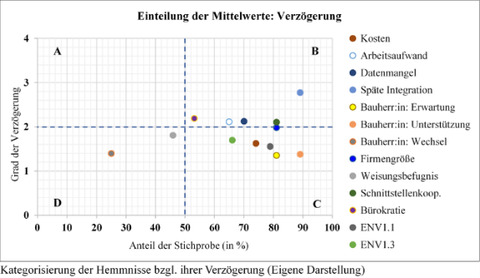
Kategorisierung der Hemmnisse bzgl. ihrer Verzögerung (eigene Darstellung)
Im Rahmen der Förderung werden Veröffentlichungen im Kontext des Nachhaltigen Bauens unterstützt, wodurch Grundlagen für das zukünftige Bauen erforscht und geschaffen werden können. Im Mittelpunkt soll die Publikation der Abschlussarbeit zu den Hemmnissen im Zertifizierungsprozess der Deutschen Gesellschaft für Nachhaltiges Bauen (DGNB e.V.) stehen. Das DGNB System hat den Anspruch eine ganzheitliche Beurteilung eines Gebäudes im Sinne der Nachhaltigkeit sicherzustellen. Darüber hinaus werden parallel weitere Forschungsteilprojekte bearbeitet und zur Veröffentlichung aufbereitet, die sich ebenfalls mit Nachhaltigem Bauen und dem innovativen Material Carbonbeton beschäftigen.
Schwerpunkte der angestrebten Veröffentlichungen:
- Hemmnisse im DGNB Zertifizierungsprozess
- Rohstoffknappheit der Carbonbetonbauweise
- LCA Review der Carbonbetonbauweise
Mit den beantragten Mitteln werden somit neben der Veröffentlichung der Abschlussarbeit auch interdisziplinäre Forschungsteilprojekte zwischen der TU Dresden und der RWTH Aachen gefördert.
Ansprechperson: Jasmin Wuth
Einrichtung: Professur für Nachhaltigkeitsmanagement und Betriebliche Umweltökonomie
FOSTER-Förderlinie: STUDENTRESEARCH@TUD
In Zeiten der Coronapandemie ist die Förderung der Lizenzkosten für MAXQDA eine notwendige Ergänzung zu bestehenden PC-Pool-Lizenzen, daher wird mithilfe von FOSTER die für die wissenschaftliche Bearbeitung von Abschlussarbeiten notwendige Software MAXQDA zur qualitativ-quantitativen Inhaltsanalyse bestehender Literatur/Forschung finanziert. Die Abschlussarbeiten beschäftigen sich mit unterschiedlichen Thematiken und sind in laufende Projekte eingebunden:
- Die Masterarbeiten, die in das Forschungsprojekt innovatION eingebunden sind, befassen sich mit der Nachhaltigkeitsbewertung von Entsalzungstechnologien, konkret mit der ökonomischen Nachhaltigkeitsdimension und ihren Schnittstellen zu anderen Nachhaltigkeitsaspekten.
Ansprechpersonen: Tobias Kaiser, Katharina Brune, Konrad Schadt, Tabea Rohr - Die Masterarbeit, die in das Projekt Chair of Sustainability and Textile Innovation eingebunden ist, beschäftigen sich mit Nachhaltigkeitsaspekten von Slow Fashion entlang der textilen Wertschöpfungskette. Das Projekt findet in Kooperation zwischen der Professur für NBU und UNU-Flores statt.
Ansprechperson: Tamany Schmidt - Die Masterarbeiten, die in das Projekt Deutscher Nachhaltigkeitskodex eingebunden sind, setzen sich mit der Nachhaltigkeitsberichtserstattung von börsenorientierten Unternehmen zum Themenfeld Biodiversität auseinander.
Ansprechpersonen: Anne Ladusch, Mai Huong Duong - Die Abschlussarbeiten sind an der Professur für NBU in laufende Forschungsprojekte zu den Themen nachhaltiges Bauen und in den Sonderforschungsbereich SFB-TRR 280 eingebunden. Sie werden sich mit dem Themenfeld Sustainable Design in der Kreislaufwirtschaft: Versorgungs- und Preisrisiken von Stahl und Carbonfasern und seine Auswirkungen auf die Wertschöpfungskette im Bauwesen beschäftigen. Ziel ist es u. a. den Forschungsstand bzgl. der Impacts von Verknappung der Baumaterialien Sand und Kies auf die nachgelagerten Wertschöpfungsketten im Bauwesen zu identifizieren und konkrete konzeptionelle Vorschläge für Strategien zur Kreislaufführung abzuleiten.
Ansprechperson: Freya Hadwich, Franz Ludwig, Alexa Köhler, Schelomi Sophia Magnus, Julia Senninger, Annika Scholl, Alexander Schubert - Die Masterarbeit, die in Forschungsprojekte zum Thema Kreislaufwirtschaftsdenken/Curicular Economy eingebunden ist, beschäftigt sich mit dem Themendeld der Nachhaltigkeitsaspekte von Verpackungen von Medikamenten in der Pharmabranche. Ziel ist es u. a. den Forschungsstand bzgl. der Umweltwirkungen von Verpackungen von Medikamenten zu identifizieren und konkrete nachhaltige Lösungsstrategien i. S. der Circular Econony zur Verringerung der Schadenswirkung bzw. deren Verbesserung abzuleiten.
Ansprechperson: Leonard Mayer - Die Abschlussarbeit ist in das laufende Forschungsprojekt zu Nachhaltigem Bauen eingebunden und beschäftigt sich mit dem Themenfeld Auswirkungen der Corona-Pandemie auf die Nutzung von Holz als nachhaltigen Rohstoff im Hochbau. Ziel ist es u.a. den Forschungsstand bzgl. der Verwendung von Holz im Hochbau bestenfalls im Vergleich vor Corona und dem Jahr 2022 zu identifizieren. Ferner stellt sich die Frage, inwiefern der Einsatz von Holz Zielen des nachhaltigen Bauens sowie Umweltschutzes fördert oder widerspricht.
Ansprechperson: Franz Ludwig, Valerie Scheller - Die Abschlussarbeit wird sich zum Themenfeld Versorgungsrisiken in der Baubranche; Auswirkungen des Urkaine-Kriegs auf die Flughäfen-Infrastrukturprojekte und deren Lieferketten beschäftigen. Ziel ist es u.a. den Forschungsstand bgzl. der Versorgungsrisiken in der Baubranche, insbesondere dem Tiefbau, aus Sicht von Baumaterialien, Transportleistungen und Personalüber die gesamte Wertschöpfungskette konkreter Großprojekte zu identifizieren.
Ansprechperson: Max Gleitsmann - Die Abschlussarbeit wird sich zum Themenfeld
Nachhaltigkeitsaspekte und Folgen durch Klimawandel für die Agrar- und
Ernährungswirtschaft beschäftigen. Damit ist i.S. studentischer Forschung an der
Professur für NBU und UNU-Flores in das Forschungsprojekt "KlimaKonform" eingebunden. Ziel ist es u.a. den Forschungsstand bzgl. der Impacts durch Klimawandel auf diese Branche sowie Möglichkeiten der Anpassung (adaptation) und Vermeidung (mitigation) über die gesamte Wertschöpfungskette zu identifizieren.
Ansprechperson: Josseline Rauscher - Die Abschlussarbeit wird sich mit dem Themenfeld Nachhaltigkeitsberichterstattung und abgeleitete Unternehmensstrategien beschäftigen. Damit ist Herr Lahrkamp i.S. studentischer Forschung an der Professur für NBU in die Forschungsfelder Entscheidungsmodelle und Umweltindikatoren eingebunden. Im Besonderen besteht eine Kooperation mit der Firma Danzer Holding AG. Ziel ist es u.a. den Forschungsstand sowie die aktuellen gesetzlichen und freiwilligen Richtlinien und Anforderungen für die Nachhaltigkeitsberichterstattung zu ermitteln und die bestehende Berichterstattungvon Danzer zu überprüfen.
Ansprechperson: Vinzenz Paul Lahrkamp - Die Abschlussarbeit wird sich mit dem Themenfeld Nachhaltigkeitsaspekte von Lebensmittelinnovation durch Kreislaufführung beschäftigen. Damit ist i.S. studentischer Forschung an der Professur für NBU, Institut für Naturstofftechnik und UNU-Flores in das Forschungsprojekt "FERBLEND" eingebunden. Ziel ist es u.a. den Forschungsstand bzgl. des Impacts dieser Lebensmittelinnovation im Vergleich zur typischen Tierfutterverwertung über die gesamte Wertschöfpungskette und andere ähnliche Innovationen im Lebensmittelbereich durch Kreislaufführung zu identifizieren.
Ansprechperson: Robert Schön - Die geförderte Masterarbeit ist als Fortführung des bereits erfolgreichen
Forschungsseminars anzusehen. Die Abschlussarbeit wird sich zum Themenfeld
Nachhaltigkeitsreporting und organisationaler Wandel in der Pharmaziebranche
beschäftigen. Damit ist i.S. studentischer Forschung an der Professur für NBU in
Forschungsprojekte zum Thema nachhaltiger Organisationsentwicklung und
Nachhaltigkeitsreporting eingebunden. Ziel ist es u.a. die wechselseitigen Ein- &
Auswirkungen des organisationales Wandels auf das Nachhaltigkeitsreporting im
Umfeld der pharmazeutischen Industrie zu identifizieren.
Ansprechperson: Leonard Mayer
Einrichtung: Professur für BWL, insb. Nachhaltigkeitsmanagement und Betriebliche Umweltökonomie
FOSTER-Förderlinie: STUDENTRESEARCH@TUD
Die Heterogenität in frischen vulkanischen Basalt-Aquifersystemen ähnelt denen in Karst-Aquiferen. Diese Systeme sind durch mehrere Arten von koexistierenden durchlässigen Hohlräumen gekennzeichnet, darunter Hohlräume mit Strömungskontakt, Gesteinsbrüche und Lavaröhren (Pseudo-Karst)-Kanäle. Trotz der umfangreichen Forschung zu diesen Systemen ist das Zusammenspiel zwischen diesen Arten von Permeabilitäten kaum bekannt, was Auswirkungen auf die unvorhergesehene Grundwasserleiterkontamination und das Eindringen von Salzwasser in Küstengebiete hat.
In der Masterarbeit wurden diskrete Kontinuums- und äquivalente poröse Medienmodellansätze verwendet, um die hydraulische Systemfunktion dieser Pseudokarstsysteme zu untersuchen. Diese Arbeit war die erste Anwendung eines diskreten Kontinuumsmodellansatzes auf ein Basalt-Aquifersystem.
Mit den beantragten Mitteln sollen weitere Untersuchungen zur Eignung dieses Modellansatzes finanziert und die Zusammenarbeit mit Partner:innen auf Hawaii erleichtert werden. Die Ergebnisse sollen in einer Fachzeitschrift veröffentlicht werden.
Ansprechperson: Dwight Ransbarger Baldwin
Einrichtung: Institut für Grundwasserwirtschaft
FOSTER-Förderlinie: STUDENTRESEARCH@TUD
Die Antragstellerin konnte mit den beantragten Fördermitteln ihre Ergebnisse aus der Projektarbeit Design and Parametric Modelling of Pretensioned and Stiffened Membranes in der Zeitschrift „Buildings“ veröffentlichen.
Ansprechperson: Iuliia Lebedeva
Einrichtung: Institut für Stahl- und Holzbau, Professur für Ingenieurholzbau und baukonstruktives Entwerfen
FOSTER-Förderlinie: STUDENTRESEARCH@TUD
In Sachsen entstanden im ausgehenden 18. / im frühen 19 Jh. – charakteristischerweise in Mittel- und Vorgebirgstäler – aus der freien Landschaft heraus entwickelte, extensiv gestaltetet Gartenlandschaften. Eine ideengeschichtliche Verortung dieses Phänomens der „verschönerten Landschaft“ in der Gartenhistorie steht bisher aus.
Da um 1800 auch in Böhmen, Mähren und Schlesien verschönerte Täler entstanden, ergeben sich im Abgleich mit Sachsen verschiedene Fragen: Sind diese Entwicklungen jeweils als eigenständig zu betrachten oder fand eine gegenseitige Beeinflussung statt?
Im Studierendenprojekt sollen im Sinne einer Grundlagenforschung Erkenntnisse generiert werden, die wichtige Beiträge zu den am Lehrstuhl für Geschichte der Landschaftsarchitektur angesiedelten Forschunsprojekten leisten können und letztlich in diesen Eingang finden sollen. Zentral ist hierbei zunächst das Anliegen, die Existenz weiterer verschönerter Täler nachzuweisen, da diese innerhalb der Gartengeschichte bisher weder als Typus bekannt, noch hinreichend beschrieben sind. Hierzu sollen Quellen recherchiert werden, die Aufschluss geben über die jeweiligen Auftraggeber, deren Motivation und Inspirationsquellen sowie konkret vorgenommene gärtnerische Interventionen und Gestaltungsphasen. Das gesammelte Grundlagenmaterial soll nachgelagert innerhalb der Forschungsprojekte ausgewertet und in den wissenschaftlichen Diskurs eingebracht werden.
Mit den beantragten Mitteln werden studentische und wissenschaftliche Hilfskraftstellen finanziert sowie Archiv- und Druckkosten übernommen.
Link zur Website: Forschungsprojekt Verschönerte Tallandschaften
Ansprechperson: Jan Rosciszewski, Anne Charlotte Henze
Einrichtung: Lehrstuhl für Geschichte der Landschaftsarchitektur
FOSTER-Förderlinie: STUDENTRESEARCH@TUD
Durch die beantragten Fördermittel konnte die Teilnahme an der Konferenz, auf der die Masterarbeit der Antragstellerin zum Thema Continuous Improvement with Maturity Models vorgestellt wurde, finanziert werden.
Im Zuge der Tagungsteilnahme können aktuelle Beiträge aus der Forschung präsentiert und diskutiert werden. Zudem fördert eine Tagungsteilnahme bereits als Student:in den Austausch mit anderen (Nachwuchs-) Wissenschaftler:innen und kann einen wertvollen Beitrag zum Aufbau eines eigenen Netzwerks leisten.
Link zur Konferenz: Pacific Asia Conference on Information Systems (PACIS)
Ansprechperson: Mareike Pinnecke
Einrichtung: Fakultät Wirtschaftswissenschaften, Professur für Wirtschaftsinformatik insbesondere Informationsmanagement
FOSTER-Förderlinie: STATA
Vollautomatisierte Fahrzeuge werden nicht mehr von Menschen gesteuert. Folglich müssen die Fahrzeuge die vielfältigen Aufgaben menschlicher Fahrer:innen übernehmen. Dazu gehört auch die Kommunikation mit der Verkehrsumwelt. Momentan wird diskutiert, ob dies durch sogenannte external Human-Machine-Interfaces (eHMIs) geschehen soll. eHMIs sind außen am Fahrzeug angebracht und senden explizite Botschaften an nahe Verkehrsteilnehmer:innen. Doch welche Nachrichten soll das Fahrzeug genau entsenden und aus welcher Perspektive soll dies geschehen? Soll das Fahrzeug nur darüber informieren, dass es anhält, oder auch, dass es weiterfährt? Sollen die Botschaften sich darauf beschränken, über den eigenen Status zu informieren oder Fußgänger:innen direkt instruieren?
Ziel des Vorhabens ist es, diesen Forschungsfragen in einem studentischen psychologischen Experiment nachzugehen, die Ergebnisse auf einer internationalen Konferenz vorzustellen und anschließend auf Englisch international zu publizieren.
Ein Experiment wurde durch den Antragsteller bereits im Rahmen der Masterarbeit durchgeführt. Die Ergebnisse weisen darauf hin, dass Signale, die aus der Sicht des Fußgängers kommunizieren, am schnellsten und sichersten verstanden werden. Das daraus entstandene Abstract wurde als Konferenzbeitrag akzeptiert und ein Artikel für den Konferenzband eingereicht.
Mit den beantragten Mitteln wurde die Teilnahme an der International Conference on Intelligent Human Systems Integration finanziert.
Link zur Konferenz: IHSI: International Conference on Intelligent Human Systems Integration
Ansprechperson: Sebastian Ludwig Weiß
Einrichtung: Fakultät Verkehrswissenschaften, Professur Verkehrspsychologie
FOSTER-Förderlinie: STATA
Nachwachsende Rohstoffe gewinnen im Zuge der Bioökonomie immer mehr an Bedeutung. Besonders Holz spielt seit jeher eine wichtige Rolle in der Entwicklung der Menschheit und erfährt neuerdings eine Art Renaissance.
Bei dem nativen Forstprodukt lassen sich verschiedene chemische Modifizierungen anwenden, um dessen Eigenschaften zu verbessern.
Durch die strukturerhaltende Entfernung der Holzkomponenten Lignin und Hemicellulosen lassen sich orientierte Cellulosegerüste erhalten. Bei einer anschließenden Verpressung können hochfeste Verbünde gebildet werden, die Anwendungsbereiche erschließen, welche bislang nur Metallen vorbehalten waren.
Darüber hinaus besteht mit der Acetylierung des Holzes die Möglichkeit, die Beständigkeit gegen biotische Schädlinge und feuchteinduzierten Verfall zu erhöhen. Die nachhaltige Wertschöpfung von Biomasse ist ein essenzieller Teil im Umgang mit der Klimakrise und bedarf innovativer Ideen.
Untersuchungen zur Delignifizierung und Acetylierung von Holz sind Thema der Diplomarbeit des Antragstellers. Die beantragten Mittel dienen also der Expansion bestehender studentischer Forschung und werden verwendet, um zusätzliche Versuche durchzuführen, Daten zu generieren und strukturaufklärende Methoden zu nutzen.
Mit der Förderung sollen Chemikalien zur Durchführung zusätzlicher Versuche finanziert werden. Die Experimente sollen in den Laboren des Instituts für Pflanzen- und Holzchemie durchgeführt werden. Alle Ergebnisse erweitern die Datenbasis der Diplomarbeit und tragen zum genaueren Verständnis der Wechselwirkung im Modifizierungsprozess bei.
Ansprechpersonen: Winfried Barth
Einrichtung: Professur für Holztechnik und Faserwerkstofftechnik
FOSTER-Förderlinie: STUDENTRESEARCH@TUD
In der Wirtschaftsinformatik stehen die Entwicklung und Anwendung von Informationssystemen im Fokus. Herausforderung bei der Entwicklung des Artefakts ist die Balance zwischen wissenschaftlicher Rigorosität und praktische Relevanz. Dieses Forschungsvorhaben intendiert die Umsetzung und Evaluation eines Reifegradmodells (RM) zur betrieblichen online Kollaboration (BOC). Hierdurch werden Unternehmen in der Bewertung und Weiterentwicklung ihrer BOC unterstützt. Durch Entwicklung einer MS Teams Web-Applikation wird der Mangel an praxistauglichen Ansätzen zur Steuerung von BOC adressiert.
Die Basis bildet ein theoretisches RM, dessen Umsetzung und Evaluation als Prototyp intendiert wird. Diesen gilt es nach wissenschaftlich rigorosem Vorgehe zu entwickeln und evaluieren. Der Prototyp soll eine automatisierte Bewertung d Ist-Situation und Aufzeigen des Reifegrads sowie Entwicklungspfades des Unternehmens, auf Basis von erfassten Nutzerdaten und Fragebogenelementen ermöglichen, wodurch Unternehmen ein Tool zur Steuerung von BOC gegeben wird.
Zentraler Bestandteil des Projektes stellt die technische Umsetzung mit entsprechenden Funktionalitäten dar. Aus der Forschungsperspektive sind die Erarbeitung entsprechender Modelle zur Prototypenentwicklung sowie die anschließende Evaluation die zentralen Elemente für eine anschließende Publikation. Entsprechend ist der Prototyp selbst als Mittel zum Zweck der Sicherstellung der Anwendbarkeit und praktischen Relevanz zu sehen.
>> Projekt der Ausschreibung 2021 <<
Ansprechpersonen: Erik Fischer, Thomas Richter
Einrichtung: Professur für Wirtschaftsinformatik insb. Informationsmanagement
FOSTER-Förderlinie: STUDENTRESEARCH@TUD

© Clara Blum

© Clara Blum

© Clara Blum

© Clara Blum

© Clara Blum
Die Hochschulgruppe „Nachhaltigkeits-AG Bauingenieurwesen“ gründete sich im Frühjahr 2021. Diese bringt Studierende der Fachrichtung Bauingenieurwesen an der TU Dresden zusammen, die sich in der universitären Lehre einen intensiveren Fokus auf die vielfältigen Themen rund um „Bau und Umwelt“ wünschen.
Das erklärte Ziel der Hochschulgruppe ist es, Studierende für Nachhaltigkeitsthemen zu sensibilisieren und ihnen diesbezüglich neue Inhalte näher zu bringen. Dafür werden in verschiedenen Arbeitsgruppen Tagesausflüge und Themenstammtische organisiert, sowie Zuarbeit für die verschiedenen Institute der Fakultät geleistet.
Um die adressierten Themen für die Studierenden begreifbarer und nach langer Zeit auch mal wieder erfahrbar zu machen, fand im Oktober 2021 die erste mehrtägige Exkursion der Nachhaltigkeits-AG statt.
Die Exkursion mit den Hauptthemen Holzbau, Hanfbau und zirkuläres Bauen führte nach Berlin. Hier sollten die Teilnehmenden neue Denkanstöße und Informationen erhalten. Dafür wurden neben Baustellenbegehungen auch Vorträge und ein Workshop durchgeführt.
Im Nachgang der Exkursion wurde eine Befragung der Teilnehmenden durchgeführt, um ihr neu gesammeltes Wissen zu bündeln. Die Ergebnisse dieser Umfrage sind die Grundlage der Beantwortung der Leitfragen in diesem Bericht.
Ansprechperson: Clara Pauline Blum
Einrichtung: Institut für Maschinenelemente und Maschinenkonstruktion, Professur für Technisches Design
FOSTER-Förderlinie: STUDENTFORUM@TUD
Grundwasser stellt die wichtigste Quelle für Trinkwasser in Deutschland dar. Rund 61 % des gewonnen Trinkwassers stammten 2016 aus Grundwasserkörpern (UBA, 2020). Der Schutz der Qualität dieser Ressource erfordert daher eine Überwachung und Beurteilung kontaminierter und potenziell kontaminierter Standorte.
Stofftransportmodellierung bietet hierfür ein wichtiges Werkzeug. Zur Modellierung stehen drei wesentliche Ansätze zur Verfügung: empirische, analytische und numerische Modelle. Während empirische und analytische Modelle geringe Anforderungen an Standortdaten und personellen Aufwand haben, sind sie jedoch oft eingeschränkt in ihrer Anwendbarkeit. Numerische Modelle sind dagegen geeignet alle Problemstellungen zu lösen, bedeuten aber gleichzeitig einen enormen Kosten- und Arbeitsaufwand.
Ziel dieses Projektes ist es, durch einen hybriden Ansatz Modelle zu entwickeln, die die simple Handhabung von analytischen Modellen mit der guten Anwendbarkeit numerischer Modelle vereint. Grundlage der Arbeit soll die Analytische Elemente Methode (AEM) bilden, anhand der eine Vielzahl von Grundwasserströmungsproblemen gelöst werden kann. Diese soll in Kombination mit einem numerischen Modellteil ein reaktives Stofftransportsystem mit zwei Stofffraktionen abbilden.
Die Arbeit kann möglicherweise zu einer Vereinfachung des Beurteilungsprozesses potenziell kontaminierter Grundwasserstandorte führen.
Mit den Fördermitteln von FOSTER wird ein Forschungsaufenthalt an der University of Waterloo in Kanada finanziert.
Kontaktperson: Anton Köhler
Einrichtung: Institut für Grundwasserwirtschaft
FOSTER-Förderlinie: STATA
Mit den beantragten Mitteln wurde eine Teilnahme an der 38sten European Group for Organisational Studies (EGOS) Konferenz finanziert werden. Die Einladung zur EGOS Konferenz beruht auf der Einreichung eines Forschungspapiers, welches Lena Riek in Erstautorinnenschaft gemeinsam mit Prof. Dr. Boukje Cnossen (Leuphana Universität) und Prof. Dr. Blagoy Blagoev (TU Dresden, Fakultät Wirtschaftswissenschaften, Lehrstuhl für Betriebswirtschaftslehre insb. Organisation) verfasst hat. Das Papier trägt den Titel “The role of video-conferencing software in the communicative constitution of power in virtual teams” und beruht auf 14 Monaten digital-ethnografischer Forschung, welche Lena Riek zunächst im Rahmen ihrer Bachelorarbeit begonnen und darüber hinaus weitergeführt hat. Die Studie adressiert und problematisiert die zunehmende Nutzung von Videokonferenzen in Organisationen während und nach der Corona-Pandemie.
Diese Ergebnisse stellte sie vor ca. 50 internationalen Forscher:innen im Sub-theme 06: Performing Creativity, Innovation, and Change: Communicating to Reconfigure the Organization vor und diskutierte sie.
Eine Teilnahme an der EGOS Konferenz bot Lena Riek die Möglichkeit ihre Forschungsergebnisse mit internationalen Spitzenforscher:innen zu diskutieren, Kontakte in einem signifikanten Forschungsfeld zu knüpfen und Feedback für die weitere Entwicklung des Papiers zu erhalten.
Kontaktpersonen: Lena Riek, Prof. Dr. Blagoy Blagoev
Einrichtung: Fakultät Wirtschaftswissenschaften
FOSTER-Förderlinie: Student Academic Travel Award | STATA
Die Corona-Pandemie hat die Arbeitswelt nachhaltig transformiert. Homeoffice gehört heute für viele Firmen und Organisationen zum Arbeitsalltag. Ermöglicht wird das räumlich flexible Arbeiten vor allem durch Informations- und Kommunikationstechnologien, nicht zuletzt Videokonferenzsoftware. Während Manager:innen oft die höhere Flexibilität und Effizienz von Onlinemeetings betonen, problematisiert die Studie von Lena Rieck die zunehmende Nutzung von Videokonferenzsoftware. Basierend auf 14 Monaten Feldforschung, aufgezeichneten Meetings und Interviewdaten arbeitet sie in ihrer Forschungsarbeit soziotechnische Dynamiken heraus, die Kommunikation in online Meetings verzerren, bestehende Machtstrukturen verstärken und über die Zeit zu kontraproduktiven Outcomes führen können. Die Ergebnisse der Studie wurden bereits auf 2 internationalen Konferenzen (EGOS & ICA) und auf verschiedenen Forschungsplattformen präsentiert. Basierend auf dem eingeholten Feedback hat Lena Rieck weiteres Datenmaterial erhoben (7 Interviews, 22 Audioaufnahmen von Meetings). Um das Material angemessen verarbeiten zu können, muss dieses aber in transkribierter Form vorliegen. Eine Transkription dieser Datenmenge würde ihre eigenen zeitlichen und finanziellen Kapazitäten übersteigen. Daher unterstützt FOSTER das Forschungsprojekt, um es auf qualitativ hohem Niveau weiterführen zu können.
Kontaktperson: Lena Rieck, Prof. Dr. Blagoy Blagoev
Einrichtung: Fakultät Wirtschaftswissenschaften, Lehrstuhl für Betriebswirtschaftslehre inbs. Organisation
FOSTER-Förderlinie: Studentische Forschungsaktivitäten an der TUD | STUDENTRESEARCH@TUD
Das Projekt befasst sich mit der Stofftransportmodellierung in Grundwasserleitern. Diese ist ein wichtiges Werkzeug zur Bewirtschaftung der Ressource Grundwasser, in Hinblick auf dessen Qualität. Ziel des Projektes war und ist es neue Methoden zur Modellierung zu erschließen. Dabei liegt der Fokus auf der Verwendung analytischer Modelle zur Modellierung von reaktivem Stofftransport. Grundlage dafür bildet die Analytische Elemente Methode (AEM), welche bisher allein für die Modellierung von Grundwasserströmung verwendet wird. Zu Beginn des Forschungsaufenthaltes an der Universität Waterloo war die Nutzung der AEM in Verbindung mit einer numerischen Transportmodellierung vorgesehen. Aufbauend auf den Erkenntnissen des Aufenthalts wurde diese Zielstellung jedoch angepasst. Es konnte gezeigt werden, dass ein reaktiver Transport als rein analytisches Modell auf Grundlage der AEM umgesetzt werden kann. Dies ist eine wichtige Erkenntnis, die ermöglicht die Vorteile der analytischen Modellierung auch für Stofftransportprobleme zu nutzen, was bisher in dieser Form nicht möglich war.
Kontaktpersonen: Anton Köhler, Dr. Prabhas Kumar Yadav
Einrichtung: Institut für Grundwasserwirtschaft
FOSTER-Förderlinie: Student Academic Travel Award / STATA
Die Hitzevulnerabilitätsanalyse ist international bereits ein wichtiger
Forschungsschwerpunkt und beispielsweise in den USA gibt es schon einige
Fallstudien zur Untersuchung der Hitzevulnerabilität in Städten. In Deutschland gibt
es bereits das ein oder andere Projekt, das sich mit der Thematik befasst. Allerdings
fehlt bisher die Bandbreite an Studien und Untersuchungen zu dieser Thematik.
Der Antrag dient dazu finanzielle Mittel, die während der Bearbeitung der
Masterarbeit aufgekommen sind, zu fördern. Einerseits soll die Transkription von
fünf Interviews durch „happyscribe“ gefördert werden. Der Grund dafür ist, dass der
Zeitumfang, um eine Transkription durchzuführen sehr groß ist. Diese Zeit geht
verloren für wichtige Analysen und die Auswertung der Masterarbeit. Die Plattform
„happyscribe“ übernimmt die Transkription von Audiodateien in Textdateien für
0,20€ pro Minute der Audiodatei. Dies stellt für mich eine enorme Erleichterung im
Zeitmanagement der Masterarbeit dar und würde zur maximalen Flexibilität der
Forschung dienen.
Außerdem wird rückwirkend eine 6-Monate Lizenz für Studierende von MAXQDA Pro Analytics beantragt.
Kontaktpersonen: Uhlmann, Angela, Prof. Dr.-Ing. Alexandra Weitkamp, Jasmin Uttner
Einrichtung: Fakultät Umweltwissenschaften
FOSTER-Förderlinie: Studentische Forschungsaktivitäten an der TUD |
STUDENTRESEARCH@TUD
Die Veränderung von Lebensräumen durch Klimawandel, Übernutzung von Böden, Vegetation und Gewässern führen zum Verlust von Biodiversität auf drei verschiedenen Ebenen (Ökosystemdiversität, Artendiversität, genetische Variabilität). Biodiversität ist in diesem Kontext als Grundlage des Nachhaltigkeitskonzepts zu verstehen, deren Verlust Risiken von globalem Ausmaß in sich birgt. Der Erhalt und Schutz planetarer Ressourcen ist in den SDGs der UN festgehalten.
Innovation, gesellschaftsorientierter Transfer von Wissen und Werten sowie das partizipative Mitgestalten der gesellschaftlichen Transformationen gehören zu immer wichtigeren Tätigkeitsbereichen von Hochschulen. Diese tragen über die Ausbildung der zukünftigen Führungskräfte zur Aufklärung und Transformation der Gesellschaft bei, und können in diesem Kontext als Vorbilder agieren, wodurch sich das Bewusstsein für Biodiversität erhöhen kann. Deshalb sollte die Rolle von Hochschulen beim Erhalt und Schutz von Biodiversität stärker in den Fokus gesetzt werden.
Mit Hilfe der Förderung durch FOSTER soll ein Beitrag erarbeitet werden, welcher in der Special Issue Biodiversity management at higher educations institutions im International Journal of Sustainabilty in Higher Education publiziert werden soll. In Erstautorinnnenschaft wird Frau Yerokhin dabei im Rahmen einer Interviewstudie der Frage nachgehen, welche Strategien deutsche Hochschulen verfolgen, die auf den Erhalt von Biodiversität und Ökosystemdienstleistungen abzielen und wie diese umgesetzt werden.
Kontaktperson: Stella-Maria Yerokhin
Einrichtung: Fakultät Wirtschaftswissenschaften, Professur für Betriebswirtschaftslehre, insbesondere Umweltmanagement
FOSTER-Förderlinie: Studentische Forschungsaktivitäten an der TUD | STUDENTRESEARCH@TUD
Als Mitglied der Forschungsgruppe Digital Health an der TU Dresden wirkte Herr Reinsch bereits an zahlreichen wichtigen Projekten und Publikationen mit. Dies förderte seine Ambitionen und die Motivation, sein akademisches Netzwerk auszubauen und sich mit erfahrenen wissenschaftlichen Expert:innen auszutauschen.
Zu diesem Zweck nimmt Herr Reinsch im Zeitraum vom 18. bis zum 21. September 2023 an der Internationalen Tagung Wirtschaftsinformatik in Paderborn teil. Die Teilnahme bietet ihm die Möglichkeit, sein Fachwissen zu erweitern, Forschungsergebnisse vor einem Fachpublikum zu präsentieren und Feedback von Expert:innen zu erhalten. In diesem Zusammenhang erhält Herr Reinsch die Möglichkeit, zwei von ihm mitverfasste Beiträge auf der Konferenz zu präsentieren und sich mit renomierten Vertreter:innen seines Forschungsfeldes darüber auszutauschen.
Ansprechperson: Felix Reinsch
Einrichtung: Fakultät Wirtschaftswissenschaften, Forschungsgruppe Digital Health
FOSTER-Förderlinie: Teilnahme an Tagungen und Kongressen | STATA (Student Academic Travel Award)
Am Institut für Grundwasserwirtschaft (IGW) kann im Jahr 2024 ein DFG-Großgeräteantrag für ein Edelgasmassenspektrometer gestellt werden. Mit diesem ist die Altersbestimmung von Grundwässern möglich, welche einen wichtigen Beitrag zur nachhaltigen Bewirt- schaftung der Ressource Grundwasser leisten kann. In Deutschland ist diese Analytik für Anwender:innen anderer Institutionen derzeit nur an der Universität Bremen (HELIS-Labor) zugänglich.
Für die Vorbereitung dieses Vorhabens soll im Jahr 2023 gemeinsam mit dem HELIS zunächst das Know-How für die Probenpräparation am IGW aufgebaut werden. In diesem Zusammenhang möchte Herr Lieder im Rahmen seiner Masterarbeit eine dem IGW vom HELIS übergebene, ältere Präparationsapparatur reaktivieren und einarbeiten. Anschließend sollen mehrere vergleichende Präparationen in IGW- und HELIS-Labor mit anschließender Analytik am Massenspektrometer in Bremen durchgeführt werden.
FOSTER unterstützt Herrn Lieder in diesem Zusammenhang bei der Finanzierung der Reisen nach Bremen, der Verbrauchsmaterialien zum Betrieb der Präparationsapparatur sowie der Teilnahme an einer Fachtagung in Bayreuth, auf der die Ergebnisse der Masterarbeit vorgestellt werden sollen.
Ansprechperson: Johannes Lieder
Einrichtung: Fakultät Umweltwissenschaften, Institut für Grundwasserwirtschaft
FOSTER-Förderlinie: Studentische Forschungsaktivitäten an der TU Dresden | STUDENTRESEARCH@TUD
Das ARCH4HEALTH Student Research Lab wird zum vierten Mal in Folge von FOSTER gefördert. Im WiSe 2021/22 nahmen erstmalig Studierende der TU Dresden am ARCH4HEALTH Student Research Lab zum Thema "Notaufnahme" teil. Dieses Vorhaben konnte im SoSe 2022 zum Thema "Einrichtungen der Strahlentherapie", im WiSe 2022/23 zum Thema "Leit- und Orientierungssysteme“ mit Fokus im Schulwesen und im SoSe 2023 zum Thema „Psychiatrische Einrichtungen“ weitergeführt werden.
Im ARCH4HEALTH Student Research Lab durchliefen die Studierenden in eigenen Projekten den gesamten Forschungsprozess. Ziel der Vorhaben war es, die Ergebnisse der studentischen Forschungsprojekte sichtbar zu machen - zum einen durch die Publikation eines Sammelbandes und zum anderen durch eine Poster Session mit geladenen Gästen.
Der Mehrwert des Projekts bestand in dem Austausch mit der Praxis der durch die Veröffentlichung der studentischen Forschungsprojekte entstanden war. Die Poster Session mit externen Gästen aus der Praxis war eine wertvolle Erfahrung für die Studierenden, um die eigenen Forschungsergebnisse in den breiteren Kontext zu setzen und Feedback zum Forschungsprozess zu erhalten. Zudem konnte das Lehr-Team wertvolle Kontakte zu Akteurinnen und Akteuren im Gesundheitswesen in Dresden knüpfen und diese im folgenden Semester nutzen. Durch die entstandenen Kontakte konnte eine Besichtigung eines Krankenhauses für die Studierenden organisiert werden und es ergaben sich wichtige Möglichkeiten zur Datenerhebung für einige Studierenden.
FOSTER förderte die Publikation und Poster Session der Ergebnisse des ARCH4HEALTH Student Research Lab.
Ansprechpersonen: Kathrin Büter, Carolina Kolodziej und Anne-Sophie Schoß
Einrichtung: Professur für Sozial- und Gesundheitsbauten
FOSTER-Förderlinie: Forschungsorientierte Lehr-Lern-Aktivitäten (FoLLA) | ENABLE2RESEARCH
Im Verlauf seines Studiums entwickelte Herr Lieder ein sich stetig entwickelndes Interesse an den Themenfeldern der Grundwasserwirtschaft sowie der Isotopenhydrologie. Zudem absolvierte er ein dreimonatiges freiwilliges Praktikum in diesem Bereich.
Aufgrund seiner großen Begeisterung für diesen Forschungsbereich hat sich Herr Lieder entschieden, seine wissenschaftliche Karriere in diese Richtung zu vertiefen. Vorbereitend dafür nimmt er an der EGU-Generalversammung (23.-28.03.2023) sowie dem International Symposium on Isotope Hydrology (03.07.-07.07.2023) teil. Bei beiden Veranstaltungen treffen internationale Wissenschaftler:innen und Expert:innen aufeinander, diskutieren ihre Forschungen und Ideen und knüpfen neue Kontakte. Herr Lieder möchte in diesem Zusammenhang die Chance nutzen, sich mit zahlreichen führenden Wissenschaftler:innen zu vernetzen sowie Ideen für seine Masterarbeit und die spätere Promotion zu sammeln.
Ansprechperson: Johannes Lieder
Einrichtung: Institut für Grundwasserwirtschaft
FOSTER-Förderlinie: Student Academic Travel Award | STATA
Frau Lohse und Frau Nagl besuchten im Zeitraum vom 02.05.2023 bis zum 06.05.2023 die Konferenz "17th World Congress on Public Health" in Rom. Ziel der von FOSTER finanzierten Tagungsreise war es, das wissenschaftliche Netzwerk auszubauen und Inspirationen für die anstehenden Masterarbeiten zu sammeln. Da die beiden ihren Studienschwerpunkt im Bereich der Gesundheitsökonomik angesiedelt haben und sich in diesem Zusammenhang bereits eingehend mit den Herausforderungen des öffentlichen Gesundheitswesens befasst haben, stand der fachliche Austausch im Vordergrund, um Überlegungen anzustreben, ob eine wissenschaftliche Karriere in diesem Fachbereich in Betracht kommt.
Ansprechpersonen: Eva Lohse, Jamina Nagl
Einrichtung: Fakultät Wirtschaftswissenschaften, Bereich Bau und Umwelt
FOSTER-Förderlinie: Student Academic Travel Award | STATA
Böden könnten als größter aktiver terrestrischer Kohlenstoff-Vorrat zur Bewältigung des Klimawandels beitragen. Die Mechanismen hinter der Kohlenstoff-Speicherung und Dynamik sind jedoch noch nicht vollständig erforscht.
Von Schadereignissen gefährdete Fichtenreinbestände bilden ca. ein Viertel der deutschen Waldfläche. Weißtanne wird im Waldumbau vielerorts bereits als resiliente Alternative zur Fichte eingesetzt. Über deren Effekt auf Vorräte von Bodenkohlenstoff (SOC) ist bislang nur wenig bekannt. Verschiedene Studien deuten an, dass die tiefwurzelnde Baumart das Potential zur Bildung von großen geschützten SOC-Vorräten in tieferen mineralischen Bodenschichten aufweist. Das Projekt soll diese These und zu Grunde liegende aber noch unvollständig verstandene Mechanismen erforschen und als Basis für mögliche weitergehende Untersuchungen dienen.
Das Ziel des Projektes OCTAFEE ist es, einen möglichen Baumarteneffekt von Abies alba (Mill.) auf den Bodenkohlenstoff von Waldstandorten im Vergleich zu Picea abies ([L.] Karst.) im Rahmen von drei individuellen Abschlussarbeiten zu untersuchen. Diese sollen verschiedene Teilbereiche der komplexen Thematik beleuchten. Um dem hohen Untersuchungsaufwand bewältigen zu können, wird die Laboranalyse als Gemeinschaftsarbeit durch Franziska Schenk, Eric Zeidler und Erik Nestler durchgeführt. Die daraus gewonnenen Ergebnisse dienen schließlich der Beantwortung der jeweiligen Forschungsfragen ihrer Abschlussarbeiten.
Ansprechpersonen: Franziska Schenk, Eric Zeidler und Eric Nestler
Einrichtung: Fakultät Umweltwissenschaften, Institut für Bodenkunde und Standortslehre
FOSTER-Förderlinie: Studentische Forschungsaktivitäten an der TUD | STUDENTRESEARCH@TUD
Die kontrollierte Grundwasseranreicherung (MAR) ist ein wirksamer Ansatz, um die Verfügbarkeit von Grundwasser in wasserarmen Regionen zu verbessern. Eine besondere Herausforderung repräsentieren Karstsysteme aufgrund ihrer stark ausgeprägten hydraulischen Anisotropie sowie Heterogenität. Theoretisch können MAR-Techniken für Karstsysteme eingesetz werden, um Wasser zu speichern und zurückzugewinnen oder um den unterirdischen Zufluss in das alluviale System aus dem angrenzenden hochländischen Karstsystem zu erhöhen.
Im Rahmen seiner Masterarbeit möchte Herr Genzel einen stochatischen Modellierungsansatz nutzen, um Karstsysteme in ihrer komplexen natürlichen und räumlichen Verteilung abzubilden. In diesem Zusammenhang nutzt er die von FOSTER bereitgestellten Mittel für Forschungsaufenthalte in Neuchâtel und Graz, um in den Dialog mit Fachexpert:innen zu treten und dabei die Rahmenbedingungen für die Eignung des stochastischen Modellierungsansatzes zu legen. Zudem ist eine Präsentation der Ergebnisse auf einer Fachkonferenz (EGU Wien) sowie die Publikation in einer Fachzeitschrift geplant.
Ansprechperson: Marcus Genzel
Einrichtung: Institut für Grundwasserwirtschaft
FOSTER-Förderlinie: Studentische Forschungsaktivitäten an der TUD | STUDENTRESEARCH@TUD
Chatbots sind digitale Assistenten und bieten eine interaktive Möglichkeit, um viele Menschen zu erreichen und aufzuklären. Dabei stellen diese eine effiziente Plattform zur Interaktion mit Usern dar, die sowohl zeit- als auch ortsunabhängig ist.
In seiner Diplomarbeit untersucht Franz Jendroßek, wie Chatbots durch lobende und/oder dankende Überzeugungsstrategien, die Bereitschaft Organe zu spenden erhöhen können. Weiterhin soll untersucht werden, wie der Einsatz von bestimmten Grafiken und Bildern, die Bereitschaft einen Organspendeausweis zu beantragen beeinflusst.
Für ein aussagekräftiges Ergebnis sollen die verschiedenen Überzeugungsstrategien des Chatbots von möglichst vielen verschiedenen Proband:innen bearbeitet werden. Mit den von FOSTER bereitgestellten Mitteln ist es das Ziel im Rahmen der Diplomarbeit Probanden:innen zu akquirieren, um einen Chatbot zur Organspendeaufklärung zu testen und zu validieren.
Ansprechperson: Franz Jendroßek
EInrichtung: Professur für Wirtschaftsinformatik, insbesondere intelligente Systeme und Dienste
FOSTER-Förderlinie: Studentische Forschungsaktivitäten an der TUD | STUDENTRESEARCH@TUD
Die Zusammenarbeit zwischen und innerhalb von Unternehmen hat sich in den letzten Jahren stark entwickelt. Als Folge der fortschreitenden Digitalisierung und angetrieben durch pandemische Umstände mussten Unternehmen ihre Art der intra-organisatorischen Online-Zusammenarbeit (IOC) ändern.
Ein von Christoph Baumann und seinen Partnern verfasstes Paper zielt darauf ab, eine praktische Validierung zu erreichen, indem es aktuelle Herausforderungen in der Praxis aufzeigt und sie in Beziehung zu Best-Practice-Ansätzen setzt, um diese Erkenntnisse in eine Lernumgebung zu übertragen. Das Paper beschreibt daher die Entwicklung einer Fallstudie zum virtuellen kollaborativen Lernen (VCL) für die Hochschulbildung. Zur Evaluation des VCL-Fallstudienentwurfs wurden Experten für hochschulisches E-Learning sowie Stellen aus kleinen und mittleren deutschen Unternehmen befragt. Es wurden Verbesserungsvorschläge zur Verbesserung der VCL-Fallstudie umgesetzt.
Der von Christoph Baumann und seinen Partnern verfasste Beitrag wurde auf der Konferenz INTED23, welche im Zeitraum vom 06. bis zum 08. März 2023 im spanischen Valencia stattfand, der wissenschaftlichen Öffentlichkeit präsentiert. FOSTER unterstützte Herrn Baumann dabei vor allem hinsichtlich der Konferenzteilnahme sowie bei den anfallenden Reise- und Übernachtungskosten.
Ansprechperson: Christoph Baumann, Kurt Herzig und Samuel Reeb
EInrichtung: Fakultät Wirtschaftswissenschaften
FOSTER-Förderlinie: Studentische Veranstaltungen zur studentischen Forschung an der TU Dresden | STUDENTFORUM@TUD
In seiner Diplomarbeit möchte sich Christoph Baumann mit dem aktuellen Thema der "Generative AI" sowie dem damit einhergehenden AI-Prompting befassen. In diesem Zusammenhang wird die Schnittstelle der Interaktion zwischen Mensch und generativer KI, wie z.B. ChatGPT, Bing-Ai oder Midjourney/DaIIE betrachtet. Diese Schnittstelle ist die Kommunikation von Mensch zu KI, um dieser mit Hilfe eines Texteingabefeldes zu vermitteln, welche Anforderung oder Aufgabe zu lösen ist. Dieser Prozess bezeichnet das sogenannte Prompting. Die von FOSTER bereit gestellten Mittel unterstützen Herrn Baumann in diesem Zusammenhang bei dem Erwerb der Programme GPT4 engine sowie MAXQDA, um Untersuchungen in Rahmen seiner Diplomarbeit durchzuführen.
Ansprechperson: Christoph Baumann
EInrichtung: Wirtschaftsinformatik, insbesondere Informationsmanagement
FOSTER-Förderlinie: Studentische Forschungsaktivitäten an der TUD | STUDENTRESEARCH@TUD
Der Klimawandel hat vielfältige Auswirkungen auf Mensch und Natur. Die Auswirkungen auf Ökosysteme und deren Funktionalität, sind dabei aufgrund der meist hohen Komplexität noch nicht ausreichend sicher vorherzusehen.
Wäldern kommt dabei eine besondere Bedeutung zu, da sie große Mengen atmosphärischen Kohlenstoffs aufnehmen und längerfristig festsetzen können. Aufgrund der mit dem Klimawandel zunehmenden Dürren, wird jene mitigierende Wirkung der Wälder jedoch gefährdet. Da Trockenstress zu Zuwachsminderungen und letztendlich auch zu einer höheren Mortalität führen kann, nehmen die Bäume weniger CO2 auf oder emittieren dieses sogar.
In dem Projekt von Frau Christ soll die Plastizität der hydraulischen Leitfähigkeit unter variierenden Umweltbedingungen simuliert werden. Die hydraulische Leitfähigkeit ist ein wichtiger Bestandteil des hydraulischen Systems von Bäumen und wird selbst auch durch Umweltbedingungen beeinflusst. Um dieses Wechselspiel genauer zu untersuchen, soll ein bestehendes Einzelbaummodell angepasst werden. Dort soll die hydraulische Leitfähigkeit nicht mehr als starr, sondern als dynamische, sich mit den Umweltbedingungen und dem Wachstum des Individuums verändernder Zustand betrachtet werden. Ziel ist es, ein besseres Verständnis für Ontogenese und Anpassungsstrategien von Bäumen an wasserlimitierte Bedingungen zu erlangen.
Die Förderung durch FOSTER ermöglicht die Arbeit an diesem Thema über die Finanzierung einer FHK-Stelle sowie einer Konferenzteilnahme.
Weitere Informationen zum Projekt finden Sie hier.
Ansprechperson: Jennifer Christ
Einrichtung: Professur für forstliche Biometrie und Systemanalyse
FOSTER-Förderlinie: Studentische Forschungsaktivitäten an der TUD | STUDENTRESEARCH@TUD
Rajendra Gyawali hat sich aufgrund langjähriger Erfahrung der Arbeit mit der ländlichen, vom Klimawandel gefährdeten Bevölkerung Nepals dazu entschieden, eine Masterarbeit zum Thema Assessing The Potential Of Agroforestry For Climate Change Adaptation zu verfassen.
Obwohl Nepal einen vernachlässigbaren Anteil an den weltweiten Treibhausgasemissionen hat - weniger als 0,02 % -, gehört es zu den Ländern, die am stärksten vom Klimawandel betroffen sind, da es sich um ein Gebirgsland handelt, das eine vielfältige Geologie und ökologische Anfälligkeit in Verbindung mit einer auf natürlichen Ressourcen basierenden Lebensgrundlage aufweist. Die Menschen, welche in armen sozioökonomischen Verhältnissen leben und deren Lebensunterhalt auf der Landwirtschaft basiert, leiden am meisten unter den Widrigkeiten des Klimawandels.
Es ist das Ziel der Masterarbeit, Agroforstpraktiken als Maßnahmen gegen die Widrigkeiten des Klimawandels sowie die von den Landwirten vor Ort erlebten Auswirkungen zu identifizieren, wobei eine ländliche Gemeinde Nepals betrachtet wird. Die Ergebnisse werden vor allem im Hinblick auf die Bedeutung verschiedener Agroforstsysteme für die Verbesserung der Anpassungsfähigkeit lokaler, vom Klimawandel gefährdeter Gemeinden diskutiert, um Entscheidungsträger, Planer und Klimawissenschaftler besser zu informieren, damit sie geeignete Maßnahmen und Strategien für die Anpassung an den Klimawandel auf Gemeindeebene entwerfen und reformieren können.
Ansprechperson: Rajendra Gyawali
Einrichtung: Institut für Internationale Forst- und Holzwirtschaft, Professur für Tropische und Internationale Forstwirtschaft
FOSTER-Förderlinie: Studentische Forschungsaktivitäten an der TU Dresden | STUDENTRESEARCH@TUD
Die Zunahme an Anzahl und Intensität von Extremwetterereignissen geht mit gravierenden Auswirkungen auf Umwelt, Bevölkerung und die Wirtschaft einher. Um die Auswirkungen und weiteren Entwicklungen der Klimakrise zu adressieren, hat das UNFCCC (United Framework Convention on Climate Change) es sich zum Ziel gesetzt, alle relevanten Akteur:innen zusammenzubringen, um einen kooperativen, integrierten und engagierten Ansatz zur Bewältigung der Klimakrise zu entwickeln und zu fördern.
Insbesondere die heutigen jungen Generationen werden in Zukunft mit den Auswirkungen des Klimawandels konfrontiert sein. Aus diesem Grund scheint es unabdingbar, auch die jungen Stimmen im Kontext des Umgangs mit dem Klimawandel und dessen Auswirkungen anzuhören. Aus diesem Grund wurde es ihnen ermöglicht, an dem Zusammentreffen der Konferenz UNFCCC COP 27 zu partizipieren.
In diesem Zusammenhang nahm Binsar Liem Sihotang, unterstützt durch die Förderung von FOSTER, im Zeitraum vom 05.11. - bis zum 17.11.2022 an der UNFCCC COP 27 teil. Diese fand im ägyptischen Sharm el-Sheikh statt und bot die Möglichkeit, mit anderen wissenschaftlichen Expert:innen in einen Austausch zu treten sowie auch die Perspektive junger Menschen aus aller Welt in Bezug auf den Klimawandel zu diskutieren.
Ansprechperson: Binsar Liem Sihotang
Einrichtung: Professur für Tropische und Internationale Forstwirtschaft
FOSTER-Förderlinie: Student Academic Travel Award | STATA
Mit Hilfe der FOSTER-Förderung nahm Mehvish Majeed vom 11. bis zum 16. Dezember 2022 am International Course on Wood Anatomy & Tree-Ring Ecology in Klosters (Schweiz) teil, auf welcher er seine Forschungsarbeit Dendrochronological study on Pinus roxburghii growth resilience with changing climatic conditons in lesser Himalayas vor einem Fachpublikum präsentierte. Es war dabei sein Ziel, seine Forschungsergebnisse mit anderen Expertinnen zu diskutieren und sein bestehendes Fachwissen weiterzuentwickeln und in einer Reihe von Vorlesungen zu vertiefen.
In seiner Studie befasst sich Herr Majeed damit, die vergangenen Klimabedingungen zu rekonstruieren und die Auswirkungen auf die Wachstumsresilienz von Pinus roxburghii in der Region des Kleinen Himalaya in Pakistan in verschiedenen Höhenlagen auf einer zeitlichen Skala zu untersuchen. Die aus der Studie gewonnenen dendrochronologischen Daten sollen die Wissenschaft dabei unterstützen, die ökologische Rolle von Temperatur, Niederschlag und Feuer besser zu verstehen, um bessere nachhaltige Bewirtschaftungspraktiken und Wachstumsdynamiken zu ermöglichen.
Ansprechperson: Mehvish Majeed
Einrichtung: Fakultät Umweltwissenschaften, Fakultät für Tropische und Internationale Forstwirtschaft
FOSTER-Förderlinie: Studentische Forschungsaktivitäten an der TU Dresden | STUDENTRESEARCH@TUD
Bangladesch verfügt über eine reiche biologische Vielfalt, rund 6000 Pflanzenarten - viele von ihnen mit medizinische Eigenschaften. In Bangladesch ist die Verwendung von Heilpflanzen im Medizinsystem Tradition und 80 % der Landbevölkerung sowie der Stammesgemeinschaften sind in der medizinischen Grundversorgung auf Heilpflanzen angewiesen, die vor 1990 hauptsächlich in natürlichen Wäldern angebaut wurden, bevor der kommerzielle Anbau an Bedeutung gewann.
Obwohl der Anbau von Heilpflanzen für die Landwirte gewinnbringend ist, zögern diese noch immer, den Anbau von Heilpflanzen den herkömmlichen Kulturen vorzuziehen.
Diese Studie von Pooja Debnath basiert auf dem Konzept der Wertschöpfungskette, die Aktivitäten der Wertschöpfung und die Marktbedingungen von Aloe vera und Bombax ceiba, den wichtigsten angebauten Heilpflanzen der Region. Dabei werden sowohl die Struktur der Produktionskosten analysiert und als auch die Auswirkungen von Schocks (COVID-19 und Preisentwicklung) untersucht. Die Ergebnisse der von FOSTER unterstützten Studie sollen den Landwirten helfen, entsprechend zu planen und Ansatzpunkte des Wertschöpfungskettenmodells für die weitere Verbesserung der Wertschöpfungsketten zu bieten.
Ansprechperson: Pooja Debnath
Einrichtung: Professur für tropische und internationale Forstwirtschaft
FOSTER-Förderlinie: Studentische Forschungsaktivitäten an der TU Dresden | STUDENTRESEARCH@TUD
In der breiten Öffentlichkeit ist bereits ein Verständnis dafür vorhanden, dass Mikroplastik in den Weltmeeren ein großes, v.a. ökologisches, Problem darstellt und sich direkt auf den Menschen (bspw. durch Nahrungsnetze) auswirkt. Allerdings ist Mikroplastik auch in Böden bereits ein weitverbreites, aber bisher nur wenig untersuchtes Problem. Dort möchte Frau Seidel mit ihrer Masterarbeit ansetzen.
Mit Hilfe der von FOSTER bereitgestellten Mitteln wird Frau Seidel Forschungsaufenthalte in Bayreuth und Köln durchzuführen. Diese sind essentieller Bestandteil bei einer Arbeit in der Geographie als Raumwissenschaft, um sich ein unabhängiges Bild von den Umweltfaktoren vor Ort machen zu können. Die Labore der Universität Bayreuth werden in diesem Zusammenhang durch Frau Seidel genutzt, da diese als Projektpartner im SFB 1357 Mikroplastik sind und über die notwendige Ausstattung verfügen, wie bspw. HEPA-Luftfilter, mit welchen die Proben nicht mit anderem Mikroplastik kontaminiert werden. Vor dem Aufenthalt in Bayreuth soll die erste Begehung des Untersuchungsgebiets nahe Köln vorgenommen werden.
Ansprechperson: Pauline Seidel
Einrichtung: Fakultät Umweltwissenschaften
FOSTER-Förderlinie: Studentische Forschungsaktivitäten an der TU Dresden | STUDENTRESEARCH@TUD
Herr Mischke hat im Rahmen seines Diplomstudiums eine Abschlussarbeit zu potenziellen Green Lab Zertifizierungsansätzen und der Analyse kreislauffähiger Strategien im Abfall- und Kunststoffmanagement des DKMS Labors durchgeführt. Das Ziel der Fallstudie war es, Reduktionspotenziale und sogenannte Hotspots der Abfallproduktion im Laborprozess zu identifizieren und entsprechende Maßnahmen zur Reduktion, Vermeidung, Substitution abzuleiten und vorzubereiten. Diese Arbeit soll nun mit Unterstützung von FOSTER in eine wissenschaftliche Veröffentlichung in einer einschlägigen Zeitschrift der Laborwirtschaft überführt werden.
Ansprechperson: Moritz Mischke
Einrichtung: Professur für BWL, insb. Nachhaltigkeitsmanagement und Betriebliche Umweltökonomie (NBU)
FOSTER-Förderlinie: Studentische Forschungsaktivitäten an der TUD | STUDENTRESEARCH@TUD
Medizin

© Andreas Franz

© Andreas Franz

© Andreas Franz

© Andreas Franz
Das studentische Forschungsvorhaben fokussiert auf die Optimierung der Ausbildung zukünftiger Chirurg:innen in der Roboter assistierten Durchführung von Operationen. Dabei untersucht es die Entwicklung der Leistungskurve und des „Tissue Handling“ (Umgang mit Gewebe) bei einer realen Roboter assistierten Übung nachdem diese in einem Virtual Reality (VR)-basiertem Training "geübt" werden konnte im Vergleich zur vorherigen Übung in einem realem Roboter-Training am Box-Trainer (Dry-Lab).
Effizienz und Qualität chirurgischen Trainings wird meist anhand der Zeit und Fehleranzahl bei bestimmten Übungen gemessen. Der Gewebe-Umgang ist ein zusätzliches wesentliches Qualitäts-Merkmal, das vor allem bei roboter-assistierter Chirurgie aufgrund der dort fehlenden Haptik besonders trainiert werden sollte.
Die Forschungsergebnisse sollen als Publikation veröffentlicht werden. Auf dieser Grundlage soll das Training künftiger Chirurg:innen für Roboter assistierte Operationen am Universitätsklinikum Dresden verbessert werden.
Mit den beantragten Mitteln werden die Sachkosten, die im Rahmen des geplanten studentischen Forschungsvorhabens verbraucht werden, übernommen.
Ansprechperson: Andreas Franz
Einrichtung: Medizinische Fakultät, Klinik für VTG
FOSTER-Förderlinie: STUDENTRESEARCH@TUD
Ziel des studentischen Forschungsvorhabens ist es zu untersuchen, ob sich das
Stressempfinden der bzw. des ausführenden Chirurg/in bei laparoskopischen,
Roboter-assistierten und offenen Operationen grundlegend unterscheidet. Zur
Messung des Stressempfindens sollen hierbei sowohl subjektive (Fragebögen) als
auch objektive (Vitalparameter, Biomarker) Variablen erfasst und ausgewertet
werden.
Hintergründe:
Ein erhöhtes Stresslevel bei Operateuren kann sich negativ auf die Operation und
die chirurgischen Skills auswirken und somit negativ auf das Outcome der
Patienten. Diese Studie soll die Grundlage für intraoperative Stressempfindung in
Abhängigkeit der Operationsverfahren sein.
Eigene Motivation:
Überwiegend selbstständiges Arbeiten unter engmaschiger Betreuung durch
klinisch und wissenschaftlich erfahrene Betreuer. Weiterhin die Begleitung und das
Erlernen realistischer chirurgischer Tätigkeiten im modernen Experimental-OP
unter Nutzung modernster OP-Verfahren.
Langfristige Ergebnisse:
Auf Basis der Forschung soll eine Publikation entstehen. Außerdem soll die
Forschung als Grundlage für Folgeprojekte zu Messung des Stressempfindens
während Operationen und Stress-relevante Auswirkungen auf das
Patienten-Outcome dienen.
Link zur Webseite: AG Minimalinvasive Chirurgie
Ansprechperson: Jonas Kremer
Einrichtung: Medizinische Fakultät, Klinik und Poliklinik für Viszeral-, Thorax- und Gefäßchirurgie
FOSTER-Förderlinie: STUDENTRESEARCH@TUD
Die Identifikation von Verwandten (Kin Recognition) ist ein evolutionär überlebenswichtiger Mechanismus, der prosoziales Verhalten gegenüber eigenen Verwandten fördert, sowie Inzest reduziert.
Ein wichtiges phänotypisches Merkmal, das Kin Recognition vermittelt, ist der Körpergeruch: Eltern und Kinder können sich gegenseitig am Geruch erkennen. Diese Identifikationsleistung ist u.a. mit der Bindungsqualität assoziiert. Auch Fremde können Körpergerüche von Zwillingen oder Mutter-Kind-Dyaden einander zuordnen. Dies verdeutlicht, dass Geruchsprofile zwischen Verwandten wahrnehmbare Ähnlichkeiten aufweisen. Tierstudien zeigen, dass Geruchsprofile verwandter Tiere auch chemische Ähnlichkeiten aufweisen. Beim Menschen wurde chemische Ähnlichkeit bislang nur bzgl. homozygoter Zwillinge untersucht, jedoch nicht zwischen Eltern und Kind oder heterozygoten Geschwistern. Auch sind die zugrundeliegenden Mechanismen der olfaktorischen Kin Recognition, d.h. das Zusammenspiel von chemischen Markern und Geruchswahrnehmung noch unklar.
Frau Hierl definiert in ihrem Projekt das Ziel, Geruchsprofile innerhalb nuklearer Familienstrukturen erstmalig chemisch zu analysieren und im Zusammenhang mit der subjektiven Wahrnehmung zu betrachten. Diese Erkenntnisse sollen dazu dienen, chemosensorische Kommunikation als Grundlage für die menschliche Bindung besser zu verstehen und langfristig Interventionen zur Stärkung familiärer Beziehungen ableiten zu können.
Dieses Projekt ist Teil der FOSTER-Ausschreibung des Jahres 2022. Weitere Informationen finden Sie hier.
Ansprechperson: Katharina Hierl
Einrichtung: Medizinische Fakultät
FOSTER-Förderlinie: Studentische Forschungsaktivitäten an der TUD | STUDENTRESEARCH@TUD
Patienten, bei denen ein duktales Pankreaskarzinom (PDAC) diagnostiziert wird, haben eine 5-Jahres-Gesamtüberlebensrate von 7 %. Die aktuelle Forschung prognostiziert, dass das PDAC bis zum Jahr 2030 die häufigste Ursache für Krebssterblichkeit sein wird. Derzeit gibt es jedoch nur sehr begrenzte Behandlungsmöglichkeiten für diese Patienten, da PDAC-Tumore als sehr chemoresistent gelten.
Es besteht daher ein enormer Bedarf an der Entwicklung besserer Behandlungs- und Therapiemöglichkeiten für die betroffenen Patienten.
Herr Thyen hat seine Arbeit im Labor bereits im vergangenen Jahr begonnen, indem er die Wechselwirkung zwischen dem Tumor und seiner Mikroumgebung untersucht hat. Anhand von Tumorgewebe aus resezierten PDAC-Tumoren und dazu passenden Flüssigbiopsien versucht er, die Rolle einer bestimmten Immunzellpopulation, der sogenannten Makrophagen, bei der PDAC-Erkrankung zu verstehen.
Das FOSTER-Programm unterstützt die Labor-Tätigkeit von Herrn Thyen. Sein Ziel ist es, bis zum Winter 2023 genügend Daten zu sammeln, um ein Manuskript zu veröffentlichen sowie weitere Finanzierungsmöglichkeiten einzuwerben.
Ansprechperson: Julius Thyen
Einrichtung: Humanmedizin, Viszeral-, Thorax- und Gefäßchirurgie
FOSTER-Förderlinie: Studentische Forschungsaktivitäten an der TUD | STUDENTRESEARCH@TUD
Mit dem NKLM 2.0 und der Reform des Medizincurriculums rückt die Kompetenzvermittlung wissenschaftlicher Fertigkeiten im Medizinstudium weiter ins Zentrum der ärztlichen Ausbildung in Deutschland. In diesem Zusammenhang bieten die meisten medizinischen Fakultäten bereits Kurse in einem fakultativen Rahmen an und auch epidemiologische sowie biometrische Grundlagen sind fest in Regelstudium und Prüfungsgeschehen verankert.
Im Rahmen einer Querschnittsstudie ist es das Ziel von Frau Jahn und ihren Komiliton:innen, Kompetenzen und Erwartungen zur Wissenschaftskompetenz zu erheben. Dazu soll die aktuelle Situation unter den Medizinstudierenden deutschlandweit an allen 39 Fakultäten erfasst, sowie die Einschätzung des Curriculums und der bereits vorhandenen Kompetenzen abgefragt werden. Dabei werden die wissenschaftlichen Fertigkeiten in der medizinischen Fakultät in Dresden in einer Längsschnittstudie erfasst und die Einflüsse des Kursus zur longitudinalen Wissenschaftskompetenz ermittelt. Es soll die Entwicklung der wissenschaftlichen Fertigkeiten in Abhängigkeit von der Anfertigung einer Promotionsarbeit oder den Vorstellungen zum beruflichen Werdegang erhoben werden.
Ansprechpersonen: Nadja Jahn, Max Vogt, Jean P. Bereuter, Enrik Geißler und Rona Geißler
Einrichtung: Medizinische Fakultät
FOSTER-Förderlinie: Studentische Forschungsaktivitäten an der TUD | STUDENTRESEARCH@TUD
Magenkrebs ist weltweit der fünfthäufigste bösartige Tumor und die dritthäufigste Ursache für krebsbedingte Todesfälle. Auf der Grundlage der gefundenen Mutationen wurde Magenkrebs in vier molekulare Subtypen eingeteilt. Veränderungen in den EGFR-, WNT-, TGFß-, NOTCH- und NFκB-Signalwegen wurden als Haupttreiber der Krebsprogression identifiziert. Darüber hinaus wurde der Hippo-Signalweg als ein wichtiger Signalweg identifiziert. Dieser Signalweg ist bei etwa 25 % aller Patienten mit Magenkrebs dereguliert. Er reguliert Entwicklungsprozesse von gesundem Gewebe, ist aber auch an der Tumorentstehung beteiligt.
Um die Rolle des Hippo-Signalweges zu untersuchen, wurde eine magenspezifische induzierbare Mauslinie verwendet. Die Linie wurde in verschiedenen Modellen kombiniert, indem der Hippo-Signalweg inaktiviert und entweder der WNT-, TGFß- oder EGFR-Signalweg aktiviert wurde. Die Mausmodelle ermöglichten die Untersuchung des Magenepithels im Zeitverlauf im Hinblick auf induzierte maligne Veränderungen. Aus diesen Modellen wurde eine Organoid-Biobank für Magenkrebs erstellt. Mit Hilfe des vorgeschlagenen Projekts möchte Herr Geißler untersuchen, ob der Hippo-Signalweg als potenzielle Behandlungsoption für Magenkrebspatienten dienen könnte.
Weitere Informationen finden Sie hier.
Ansprechperson: Mark Enrik Geißler
Einrichtung: Klinik für Viszeral-, Thorax- und Gefäßchirurgie
FOSTER-Förderlinie: Studentische Forschungsaktivitäten an der TUD | STUDENTRESEARCH@TUD
Die Prognose für Patienten mit einem Lebertumor ist trotz multimodaler Therapieansätze unverändert schlecht. Die Wissenschaftler:innen um Frau Hanne Reinhart hoffen, durch die Analyse verschiedener Immunmechanismen in Tumorresektaten ein besseres Verständnis dafür zu erlangen, warum viele Therapien keine Wirkung zeigen. Auf lange Sicht soll mit angepassten Therapien die Chancen auf ein Ansprechen erhöht werden.
Die Leber ist der Hauptsyntheseort der Akute Phase Proteine, deren Expression einen negativen Prognosefaktor darstellt und mit einem schlechten Ansprechen auf Immuntherapie assoziiert ist. Um eine klinische Korrelation herzustellen, ist es das Ziel von Frau Reinhart, die Ergebnisse mit den Serumspiegeln der Akute Phase Proteine (insbesondere C-reaktives Protein) zu vergleichen.
Die enge Zusammenarbeit mit der Chirurgie ermöglicht ihr dabei die Untersuchung menschlicher Tumore und dem dazugehörigen Blut der Patient:innen. Dies erfordert viel zeitliche Flexibilität und einen großen Arbeitsaufwand. Um sich voll und ganz auf meine Forschung konzentrieren zu können, wird es Frau Reinhart durch die von FOSTER bereitgestellten Mittel ermöglicht, das Projekt als SHK durchzuführen. Sie hat ihr geplantes Projekt so aufgebaut, dass die Ergebnisse einer Promotionsarbeit, sowie einer Publikation in einem anerkannten Fachjournal dienen sollen.
Ansprechperson: Hanne Malin Reinhart
Einrichtung: Medizinische Fakultät
FOSTER-Förderlinie: Studentische Forschungsaktivitäten an der TUD | STUDENTRESEARCH@TUD
Darmkrebs (CRC) ist die vierthäufigste Ursache für Krebssterblichkeit, vor allem aufgrund des Auftretens von Metastasen - hauptsächlich in der Leber. Jean-Paul Bereuter begann im Oktober 2020 im Rahmen seiner Doktorarbeit, Patient:innen mit CRC nach einer Operation zur Entfernung ihrer Lebermetastasen (CRC LM) sowie das Potenzial eines Wiederauftretens der Lebermetastasen zu untersuchen.
Die Resektion der Leber mit den dort ansässigen CRC LM verursacht eine stressinduzierte postoperative Immunsuppression. Infolgedessen werden Zytokine freigesetzt, die die Wundheilung unterstützen. Während dieser Regenerationsphase fördern Zytokine und Wachstumsfaktoren die Leberregeneration. Leider kann dies auch das Wachstum von minimalen Resterkrankungen oder Mikrometastasen in der Leber fördern, die während der Operation nicht entfernt wurden. Die Kultivierung dieser PDOs in verschiedenen Medien ergab signifikante Veränderungen in der Proliferation und der Reaktion auf bestimmte Wirkstoffe, ohne dass normale Leber-PDOs beeinträchtigt wurden.
Die von FOSTER bereitgestellten Mittel unterstützen Herrn Bereuter beim Abschluss seines Projektes sowie bei der Einreichung seines Manuskriptes zur Veröffentlichung in der Zeitschrift CMGH (Cellular and molecular gastroenterology and hepatology).
Weitere Informationen finden Sie hier.
Ansprechperson: Jean-Paul Bereuter
Einrichtung: Medizinische Fakultät
FOSTER-Förderlinie: Studentische Forschungsaktivitäten an der TU Dresden | STUDENTRESEARCH@TUD
Gegenstand des Forschungsvorhabens von Frau Schütze ist die Erstellung und Evaluierung eines multidisziplinären, kinderchirurgischen Lehrplans für die weltweit kostenfrei nutzbare Open Access Lernplattform OPENPediatrics zur Verbesserung des Kompetenzniveaus in der medizinischen Ausbildung von Studierenden und Fachärzt:innen mit Hilfe von Online-Videos in einem Flipped-Classroom-Modell.
Die optimale Versorgung von Kindern bei chirurgischen Eingriffen erfordert einen multidisziplinären Ansatz. Die herkömmliche Ausbildung erfolgt jedoch häufig innerhalb der einzelnen Fachgebiete, und es gibt derzeit keine Videos oder Lehrmittel, mit denen kinderchirurgische Behandlungen auf multidisziplinäre Weise vermittelt werden können. Daher soll mit diesem Projekt erstmals eine interprofessionelle Online-Videoserie entwickelt werden, um Auszubildende in der Pädiatrie, Anästhesie und Chirurgie über häufige kinderchirurgische Behandlungsmethoden zu unterrichten und dabei präoperative, operative und postoperative Zustände darzustellen.
Das Forschungsprojekt von Frau Schütze wird vom Boston Children's Hospital unterstützt und erfolgte auf Einladung der Harvard Medical School.
Ansprechperson: Lisa Schütze
Einrichtung: Dresdner Neurovaskuläres Centrum
FOSTER-Förderlinie: Student Academic Travel Award | STATA
Zentrale/Wissenschaftliche/Interdisziplinäre Einrichtungen

© Isa Hollopp

© Isa Hollopp

© Laura Christin Trautenberg
Die Stoffwechselvorgänge eines Organismus sind abhängig von der Nahrungszusammensetzung. Jüngste Studien haben gezeigt, dass die in der Nahrung enthaltenen Lipide eine wichtige Rolle in der Regulierung von Signalwegen sowie in der physiologischen Anpassung an Temperaturstress spielen.
Die Fruchtfliege Drosophila melanogaster gehört zu den wechselwarmen Tieren. Damit fehlt ihr die Fähigkeit zur Regulation der eigenen Körpertemperatur, welche infolgedessen den Temperaturschwankungen der Umwelt unterliegt.
In der Natur ernährt sich Drosophila von fauligen Früchten und der damit einhergehenden mikrobiellen Flora, welche oft überwiegend aus fermentierenden Hefen besteht.
Es konnte nachgewiesen werden, dass verschiedene Hefelipide einen Einfluss auf die Temperaturresistenz der Fliegen ausüben. Dies verdeutlicht, wie wichtig die Nahrungswahl als Teil der Überlebensstrategie wechselwarmer Tiere, in Bezug auf die ständig fluktuierneden Temperaturen der Außenwelt, ist.
Das von FOSTER geförderte Projekt hat das Ziel, jene Hefelipide zu identifizieren, die direkten Einfluss auf die Fitness von Drosophila ausüben. Unsere Arbeit wird zum komplexen Feld der Ernährungsforschung beitragen, in dem es Nahrungslipide als wichtige metabolische Regulatoren anerkennt.
Ansprechperson: Isa Hollopp
Einrichtung: BIOTEC
FOSTER-Förderlinie: STUDENTRESEARCH@TUD
https://tu-dresden.de/cmcb/biotec/forschungsgruppen/brankatschk



Das iGEM Team 2019 der TU Dresden hat ein schnelles, einfaches und in der Praxis einsetzbares, auf einem Papierstreifen basiertes Verfahren zum DNA-Nachweis unter Verwendung des CRISPR/Cas-Systems (DipGene) entwickelt. Das Team konzipierte ein neuartiges Fusionsprotein, durch das sich ein farbloses Substrat blau färbt, wenn eine anvisierte DNA-Sequenz vorhanden ist. Obgleich die grundlegenden Schritte bei der Entwicklung dieses Verfahrens während des iGEM-Wettbewerbs erfolgreich gemeistert wurden, ist noch etwas Optimierung notwendig. Drei ehemalige Studierende des Teams entwickeln daher verschiedene Konstrukte, die ein optimiertes und stabileres visuelles Ablesen ermöglichen sollen. Darüber hinaus werden sie die Grenzen der Nachweismöglichkeit sowie die Genauigkeit des Verfahrens bestimmen. Letztendlich soll das optimierte Verfahren für den Nachweis der Amerikanischen Faulbrut (AFB) bei Honigbienen angewendet werden. Durch FOSTER können die Kosten für die Reinigung der Zielproteine gedeckt werden - es handelt sich dabei um einen sehr anspruchsvollen Prozess, der fundiertes Fachwissen und hochentwickelte Laborausrüstung erfordert.
Ansprechpersonen: Paula Santos Otte, Mara Müller, Sebastián Eguiguren
Institution: Center for Molecular and Cellular Bioengineering (CMCB)
FOSTER-Förderlinie: STUDENTRESEARCH@TUD
Mutagene Mechanismen sind für die Anhäufung von Mutationen in jeder Zelle verantwortlich. Die Quellen somatischer Mutationen in gesunden Geweben und Karzinogenen können aus intrinsischer Mutagenese, Umweltexposition, Mutator-Phänotyp und Krebsbehandlung selbst abgeleitet werden. Das Verständnis der genomischen Verteilung der Mutagenese ist von grundlegender Bedeutung, um die Krebsentwicklung und die Tumorevolution zu rationalisieren.
Ziel dieses Projektes ist es, mit einem Deep-Learning-Ansatz zu untersuchen, wie sich Mutationen in verschiedenen Genomregionen akkumulieren und wie die mutagenen Mechanismen, die zur Tumorbildung führen, mit dieser Akkumulation zusammenhängen können. Die im Projekt verwendeten Datensätze sind Whole Genom Sequencing Data des International Cancer Genome Consortium (ICGC) und des Pediatric Brain Tumor Atlas. Für diese Art von genomischen Fragestellungen haben sich Deep-Learning-Algorithmen als besonders geeignet erwiesen, da sie in der Lage sind, komplexe Modelle zur Einbindung unterschiedlicher Informationsschichten zu erstellen. Die resultierenden Modelle werden für In-silico-Experimente verwendet, um die Interaktion mutagener Mechanismen und die genomische Spezifität der Mutationsakkumulation zu untersuchen.
Die Ergebnisse werden es uns ermöglichen zu verstehen, wie viele Mutationen in einer bestimmten genomischen Region sich beispielsweise bei Patient:innen anhäufen können, die mit Alkylierungsmitteln behandelt wurden. Darüber hinaus können wir intrinsisch schädigende Wirkstoffe wie beispielsweise reaktive Sauerstoffspezies untersuchen und herausfinden wie sie die Mutagenese in dieser bestimmten Genomregion beeinflussen können.
Mit den beantragten Mitteln werden eine wissenschaftliche Hilfskraft sowie Reise- und Aufenthaltskosten finanziert.
Link zur Biomedical Genomics Gruppe
Ansprechperson: Jessica do Amaral Andrade
Einrichtung: BIOTEC - Biomedical Genomics
FOSTER-Förderlinie: STUDENTRESEARCH@TUD

© Benjamin Wolba

© Benjamin Wolba

© Benjamin Wolba

© Benjamin Wolba

© Benjamin Wolba

© Benjamin Wolba

© Benjamin Wolba

© Benjamin Wolba

© Benjamin Wolba

© Benjamin Wolba

© Benjamin Wolba

© Benjamin Wolba

© Benjamin Wolba

© Benjamin Wolba

© Benjamin Wolba

© Benjamin Wolba

© Benjamin Wolba

© Benjamin Wolba

© Benjamin Wolba

© Benjamin Wolba

© Logo StuFoExpo
Die StuFoExpo ist eine jährlich stattfindende Ausstellung zur studentischen Forschung an der TU Dresden und leistet als Leuchtturmprojekt einen wichtigen Beitrag zur Sichtbarkeit und Wertschätzung der Studierenden als Forscher:innen. Für die diesjährige StuFoExpo sollen die Erfahrungen aus der digitalen StuFoExpo 2020 einfließen und das digitale Veranstaltungskonzept weiterentwickelt werden. Weiterhin soll im Veranstaltungsvorlauf das Gespräch mit Studierenden, Lehrenden und Alumni gesucht werden, um einen gesamtuniversitären Dialog zur studentischen Forschung anzuregen. Wir möchten damit Vorschläge zur Weiterentwicklung der StuFoExpo generieren, neue Formate konzipieren und die Begeisterung für studentische Forschung in die Fachbereiche tragen.
Unser Ziel ist es ebenso, den Kontakt zu bisherigen Teilnehmenden zu pflegen, um ein Netzwerk aus ehemaligen StuFo-Teilnehmenden zu etablieren.
Ansprechperson: Fabian Köhler
Einrichtung: Zentrum für interdisziplinäres Lernen und Lehren
FOSTER-Förderlinie: STUDENTFORUM@TUD
Im Rahmen der Arbeit im PASST?! Projekt am Zentrum für Qualitätsanalyse hat Frau Dunkel als Studentin zur Wahrnehmung von hochschulischer Beratung aus Studierendensicht geforscht. Hierzu hat sie einen Tagungsbeitrag für einen Einzelvortrag bei der Gesellschaft für empirische Bildungsforschung (GEBF) eingereicht. Die GEBF ist eine renommierte Vereinigung im Bereich der Bildungs- und Hochschulforschung. Der Beitrag wurde angenommen, sodass dieser nun auf der Tagung präsentiert werden kann.
FOSTER finanziert die Tagungsteilnahme und ermöglicht damit die Präsentation des Einzelbeitrages vor einem Fachpublikum. Im Zuge der Tagungsteilnahme können aktuelle Beiträge aus der Forschung erfahren und diskutiert werden. Zudem fördert eine Tagungsteilnahme bereits als Student:in den Austausch mit anderen (Nachwuchs-)Wissenschaftler:innen und kann einen wertvollen Beitrag zum Aufbau eines eigenen Netzwerks leisten.
Link zur digiGEBF: https://www.digigebf21.de/frontend/index.php
Ansprechperson: Pauline Dunkel
Einrichtung: Zentrum für interdisziplinäres Lernen und Lehren
FOSTER-Förderlinie: STATA

© Diana Zhilina

© Diana Zhilina
Bestimmte Hirnregionen wie der Hippocampus im Gehirn erwachsener Säugetiere enthalten adulte neurale Stamm-/Progenitorzellen (ANSPC), aus denen neue Neuronen entstehen und die der strukturellen und funktionellen Plastizität im erwachsenen Gehirn zugrunde liegen. Obwohl die Fähigkeit der ANSPCs im Gehirn von Säugetieren auf ein bestimmtes Hirnareal beschränkt ist und mit dem Alter abnimmt, besitzen andere Spezies ANSPCs in mehreren Hirnregionen und behalten ihre neurogene Fähigkeit länger bei.
Im Rahmen des Projekts soll untersucht werden, ob die Mechanismen, die der langfristigen Erhaltung von ANSPCs zugrunde liegen, bei den verschiedenen Spezies konserviert oder unterschiedlich sind. Wir konzentrieren uns auf LaminB1, eine Schlüsselkomponente der Kernlamina, die als kritischer epigenetischer Regulator für die langfristige Erhaltung von ANSPCs identifiziert wurde. Die Kernlamina spielt eine entscheidende Rolle bei der zelltypspezifischen Genregulierung, weshalb wir die Hypothese aufstellen, dass die unterschiedlichen Ebenen der Laminen den Unterschieden in den neurogenen Kapazitäten zugrunde liegen könnten.
Wir werden die Expressionsmuster von Lamin B1 in ANSPCs und ihren Nachkommen bei verschiedenen Spezies wie Primaten, Nagetieren, Amphibien und Fischen untersuchen und mit ihren neurogenen Fähigkeiten im erwachsenen Gehirn vergleichen. Das Verständnis der molekularen Mechanismen, die die Grenzen der neurogenen Fähigkeiten verschiedener Spezies bestimmen, könnte in Zukunft einen Durchbruch bei der Entwicklung therapeutischer Mittel zur Regeneration geschädigter Gehirne bedeuten.
Ansprechperson: Diana Zhilina
Einrichtung: Center for Regenerative Therapies Dresden (CRTD)
FOSTER-Förderlinie: STUDENTRESEARCH@TUD
Die FOSTER-Finanzierung wird zur Deckung von Reisekosten und zur Zahlung der Gebühren für die TERMIS-EU-Konferenz verwendet, auf der Logan Poehlman sein früheres Dissertationsprojekt dem Gremium für "Modeling, Imaging and other Enabling Technologies" vorstellen wird.
Dieses Projekt beschreibt, wie die Phänotypen von Immunzellen anhand von Zellmorphologiedaten im Rahmen des maschinellen Lernens vorhergesagt werden können. Dies ist besonders nützlich im Fall von Makrophagen, die sowohl beim Fortschreiten einer Entzündung als auch bei deren Behebung eine Rolle spielen. Bildbasierte Ansätze könnten daher Alternativen zu aufwändigeren Phänotypisierungsmethoden bieten und neue Ansätze für die Vorhersage der Immunogenität von Entzündungszellen bieten.
TERMIS-EU ist eine europaweite 4-tägige Konferenz, die sich mit Fortschritten in der Gewebezüchtung und regenerativen Medizin befasst. Die behandelten Themen sind u. a. Zellbiologie, Biomaterialien, Biofabrikation und klinischen Anwendungen. Die Konferenz bietet auch eine Reihe von Veranstaltungen zur Vernetzung und Karriereplanung für junge Forscher:innen.
Siehe für weitere Informationen zur TERMIS-EU: https://eu2022.termis.org/
Ansprechperson: Logan Poehlman
Einrichtung: Center for Molecular and Cellular Bioengineering (CMCB)
FOSTER-Förderlinie: STATA
Salamander wie Axolotl und Molche verfügen über außergewöhnliche Regenerationsfähigkeiten. Während bei den meisten Wirbeltierarten die Regenerationsfähigkeit mit zunehmendem Alter abnimmt, bleibt sie bei diesen Organismen über die gesamte Lebensspanne erhalten. Über die physiologischen oder molekularen Veränderungen, die mit der Alterung von Salamandern einhergehen, ist wenig bekannt, doch weisen diese Tiere eine hohe Resistenz gegen altersbedingte Krankheiten und eine bemerkenswert lange Lebenserwartung auf. In diesem Projekt möchte ich Marker für die molekulare Alterung sowohl bei Axolotl als auch bei Molchen identifizieren, um die physiologischen Auswirkungen der Zeit bei diesen bemerkenswerten Organismen zu verstehen und zukünftige Studien über den Zusammenhang zwischen Regeneration und Alterung zu ermöglichen.
Kürzlich wurde nachgewiesen, dass sich der Methylierungsgrad der genomischen DNA mit dem Alterungsprozess verändert. Durch die Erstellung von Profilen vieler altersbedingter Methylierungsveränderungen an bestimmten genomischen Loci ist es möglich, rechnerisch "epigenetische Uhren" zu erstellen, die die chronologische Alterung bei vielen Säugetierarten mit beeindruckender Genauigkeit vorhersagen können. In meinem Gastlabor trage ich derzeit zur Entwicklung der ersten Axolotl-DNA-Methylierungsuhr (DNAm) bei. Für die Untersuchung anderer Salamandermodelle von biologischer Bedeutung, wie z. B. Molche, fehlen jedoch noch Instrumente.
In dem vorgeschlagenen Projekt werde ich einen Multi-Gewebe-Datensatz erzeugen, um eine Molch-DNA-Methylierungsuhr zu erstellen. Außerdem werde ich untersuchen, ob Telomerlänge und Telomeraseaktivität beim Axolotl als Altersvorhersage dienen können, was derzeit noch unbekannt ist. Zusammen werden diese Instrumente weitere Untersuchungen darüber ermöglichen, wie sich altersbezogene molekulare Signaturen bei hochregenerativen Arten mit begrenzten Anzeichen von Alterung, bei wichtigen physiologischen Übergängen (z. B. Entwicklung, Metamorphose) und während des Regenerationsprozesses mit der Zeit verändern. Dieses Wissen wird dazu beitragen, innovative Strategien zur Vorbeugung altersbedingter Störungen bei Säugetieren und insbesondere beim Menschen zu entwickeln.
Siehe für weitere Informationen: https://www.theyunlab.com/
Ansprechperson: Yuliia Haluza
Einrichtung: Zentrum für Regenerative Therapien Dresden (CRTD)
FOSTER-Förderlinie: STUDENTRESEARCH@TUD
Die Ausstellung Studentischer Forschung an der TU Dresden – StuFoExpo – findet dieses Jahr bereits zum fünften Mal statt und wird seit 2021 durch das FOSTER-Programm gefördert.
Im Rahmen einer Abschlussarbeit, Seminararbeit oder einem Forschungsprojekt haben alle Studierenden schon mal eigenständig geforscht. Ein Forschungspaper oder ein Bachelorarbeitsthema, welches ungemein spannend war und Potenzial zu weiterer Analyse liefert, wird nur von den Dozierenden bzw. Betreuer:innen gelesen und nicht weiterverfolgt. Folglich bleiben die Forschungsergebnisse von Studierenden unbemerkt und verschwinden nach ihrer Bewertung in der Schublade bzw. heutzutage auf der Festplatte. Und genau das möchte die StuFoExpo ändern!
Durch die Veranstaltung soll studentische Forschung sichtbar gemacht und die Ergebnisse für einen größeren Personenkreis zugänglich werden. Diese Art der Honorierung und Wertschätzung studentischer Forschung fördert den wissenschaftlichen Nachwuchs und trägt damit zu einem Mehrwert für die Wissenschaft bei.
Die StuFoExpo 2022 bietet Studierenden die Möglichkeit, ihre Forschungsprojekte vorzustellen. Die Teilnehmenden präsentieren ihre Projekte, welche im Voraus von einer Jury bewertet wurden, in Form von kurzen Videopitches und Postern vor dem Publikum. Anschließend findet ein Austausch zwischen den Parteien über die Inhalte statt. Für die optimale Vorbereitung besteht zudem die Gelegenheit, an einem vorgelagerten Workshop teilzunehmen, in dem die Studierenden lernen, ihre Forschung zu präsentieren.
Siehe für weitere Informationen zum diesjährigen Event: https://tud.link/yftl
Kontaktpersonen: Patricia Beuter, Anne Jaschan
Einrichtung: Zentrum für interdisziplinäres Lernen und Lehren (ZiLL)
FOSTER-Förderlinie: STUDENTFORUM@TUD
Regenerierende Organismen bieten eine wissenschaftliche Plattform zur Untersuchung der Prinzipien der funktionellen Wiederherstellung von beschädigtem oder amputiertem Gewebe. Zu den berühmten Tiermodellen gehören Axolotl - Amphibien, die in der Lage sind, praktisch jedes verlorene Körperteil zu regenerieren. Um jedoch biologische Prinzipien zu verstehen, die über einen bestimmten Organismus hinausgehen, ist es notwendig, die Regeneration artübergreifend zu untersuchen. Um vollständige Erkenntnisse über die Regeneration von Organen zu erlangen, ist eine wissenschaftliche Analyse der biologischen Zusammenhänge einschließlich des Stoffwechsels erforderlich. Während die metabolische Manipulation von Axolotl noch in den Kinderschuhen steckt, stellt Drosophila ein effektives Pioniermodell dar.
Das Kooperationsprojekt zwischen den Labors von Brankatschk (BIOTEC) und Sandoval-Guzman (CRTD) integriert die biologischen Stärken beider Tiere, um den lipidabhängigen Stoffwechsel zu untersuchen. Bereits erzielten Ergebnisse weisen auf die aufschlussreiche Rolle der Leber bei der Kontrolle der Mobilisierung von Lipiden in sich regenerierenden Organismen hin. Darüber hinaus zeigt die Arbeitsidee Veränderungen im Verkehr des Insulinrezeptors in Leberzellen auf, die für die Umleitung der Lipid-Homöostase verantwortlich sind.
Mein Ziel ist es, zu untersuchen, A.) wie der Transport in Hepatozyten organisiert ist, und B.) inwieweit die Insulinrezeptor-vermittelte Signalgebung die hepatische Lipidmobilisierung steuert und infolgedessen die Kapazität von Stammzellen in regenerierenden Geweben beeinflusst. Schließlich wird mir die FOSTER-Unterstützung helfen, meine Daten einem engagierten internationalen wissenschaftlichen Publikum zu präsentieren und den erfolgreichen Abschluss meiner Studien zu unterstützen
Kontaktperson: Maria Nieves Arredondo Lasso
Einrichtung: Biotechnologisches Zentrum (BIOTEC)
FOSTER-Förderlinie: STUDENTRESEARCH@TUD
Durch die beantragten Mittel wurde die Reise zum Kongress "Viszeralmedizin" in Hamburg finanziert , wo das interdisziplinäre Projekt von Maximilian Greiner (Mechatronik) und Antonia Gillmeister (Medizin) präsentiert wurde. Nach der Teilnahme an einer interdisziplinären Springschool im März 2022 haben die beiden Studierenden ein gemeinsames Projekt in der Forschungsgruppe Patientenfunk aufgebaut. Patientenfunk hatte die Ausschreibung für das Innovations-Forum gewonnen und die Ergebnisse des Teilprojekts der Studierenden durften auf der "Viszeralmedizin", dem größten Kongress für Gastroenterologie und Viszeralchirurgie im deutschsprachigen Raum, präsentiert werden.
Ansprechpersonen: Maximilian Greiner, Antonia Gillmeister, Nora Martens
Einrichtung: Fakultät Elektrotechnik und Informationstechnik, Medizinische Fakultät Carl Gustav Carus (EKFZ)
FOSTER-Förderlinie: Student Academic Travel Award | STATA
Im Rahmen der Masterthesis untersuchte Sarah Deutscher die möglichen Auswirkungen der neuen EU-Forststrategie für 2030 auf die lokale Ebene. Die Strategie betont die Multifunktionalität der Wälder und schlägt spezifische Maßnahmen zur Verbesserung ihrer Qualität und Quantität vor.
Mit Hilfe der FOSTER-Förderung möchte Sarah Deutscher die Ergebnisse der Arbeit als Aufsatz in "Business Strategy and the Environment" veröffentlichen, um einen relevanten Beitrag für Entscheidungsträger im Forstsektor zu leisten.
Kontaktpersonen: Prof. Dr. Remmer Sassen, Vera Braun, Sarah Deutscher
Einrichtung: IHI Zittau
FOSTER-Förderlinie: Student research activities at TU Dresden | STUDENTRESEARCH@TUD
Die FOSTER-Förderung soll zur Deckung der Kosten der Labormaterialien für den bevorstehenden Wettbewerb International Genetically Engineered Machine (iGEM) verwendet werden. iGEM ist ein wissenschaftlicher Wettbewerb, der der Förderung der synthetischen Biologie, der Bildung und der interdisziplinären Zusammenarbeit gewidmet ist und bei dem Studententeams ein Projekt zur Lösung von Problemen mit globaler und lokaler Relevanz konzipieren und durchführen, während sie gleichzeitig die wissenschaftliche Bildung fördern und mit Interessengruppen und Experten zusammenarbeiten. In dem geförderten Projekt der TUD geht es um die Entwicklung eines Wundverbands zur Verbesserung der Behandlung chronischer, nicht heilender Wunden. Solche Wunden sind ein wachsendes Problem und betreffen allein in Deutschland jedes Jahr Millionen von Patienten. Noch schlimmer ist, dass chronische Wunden anfällig für bakterielle Infektionen sind und die Behandlung in hohem Maße von der langfristigen Einnahme von Antibiotika abhängt, was das Problem des Auftretens antibiotikaresistenter Stämme noch verschärft, das von der WHO zu einer globalen Gesundheitsbedrohung erklärt wurde. Das 13-köpfige Team der TUD mit Mitgliedern aus sechs Ländern, plant die Herstellung von Bakteriophagen zur Bekämpfung von Bakterien und die Synthese menschlicher Wachstumsfaktoren unter Verwendung von Hefezellen als Biofabriken zur Verbesserung der Heilung chronischer Wunden. Die Krönung des Projekts wird ein bioreaktives Hydrogel für die Verabreichung dieser Therapeutika sein. Das Team plant, die Interaktion dieser Elemente innerhalb des Hydrogels und ihre Freisetzung mit Hilfe von Molekulardynamik und anderen mathematischen Ansätzen zu simulieren und zu modellieren. Im Einklang mit den Grundsätzen von iGEM wollen sie auch die Öffentlichkeit über den Missbrauch von Antibiotika, die Bedrohung durch antibiotikaresistente Stämme, die Bedingungen und Schwierigkeiten von Patienten mit chronischen Wunden sowie über innovative wissenschaftliche Lösungen aufklären und informieren.
Kontaktpersonen: Thorsten Mascher, Giorgio Gilioli, Adrian Zimmermann
Einrichtung: iGEM
Partner: CMCB, ZIH (HPC)
FOSTER-Förderlinie: Participation in student research competitions | RESEARCHCHALLENGE PARTICIPATION, Studentische Forschungsaktivitäten an der TUD | STUDENTRESEARCH@TUD
Die FOSTER-Finanzierung wird zur Deckung der Gebühren und der
Unterbringung auf der TERMIS-EU-Konferenz verwendet, auf der Logan
Poehlman sein früheres Dissertationsprojekt dem Gremium für “Modeling,
Imaging and other Enabling Technologies” vorstellen wird. Dieses Projekt
beschreibt, wie die Phänotypen von Immunzellen anhand von Zellmorphologie
Daten im Rahmen des maschinellen Lernens vorhergesagt werden können.
Dies ist besonders nützlich im Fall von Makrophagen, die sowohl beim
Fortschreiten einer Entzündung als auch bei deren Behebung eine Rolle
spielen. Bildbasierte Ansätze könnten daher Alternativen zu aufwändigeren
Phänotypisierungsmethoden bieten und neue Ansätze für die Vorhersage der
Immunogenität von Entzündungszellen bieten.
TERMIS-EU ist eine europaweite 4-tägige Konferenz, die sich mit
Fortschritten in der Gewebezüchtung und regenerativen Medizin befasst. Die
behandelten Themen reichen von Zellbiologie, Biomaterialien, Biofabrikation,
klinischen Anwendungen und mehr. Die Konferenz bietet auch eine Reihe von
Veranstaltungen zur Vernetzung und Karriereplanung für junge Forscher.
Weitere Einzelheiten finden Sie hier.
Kontaktperson: Logan Poehlman
Einrichtung: CMCB
FOSTER-Förderlinie: Student Academic Travel Award (Participation in
conferences and congresses) | STATA
Das Axolotl besitzt die außergewöhnliche Fähigkeit, praktisch jeden Teil seines Körpers zu regenerieren. Was der Öffentlichkeit normalerweise entgeht, ist die Tatsache, dass Axolotl auch extreme Ausreißer bei der Lebenserwartung sind, die in Gefangenschaft bis zu 20 Jahre und länger leben können, wobei die maximale Lebenserwartung unbekannt ist. Sie entwickeln nur selten altersbedingte Krankheiten und zeigen keine offensichtlichen Anzeichen von altersbedingtem Verfall.
Wenn ein Organismus altert, lassen sich in der Regel Veränderungen in der Genexpression bestimmter Biomarker beobachten. Durch die Messung und Quantifizierung dieser Veränderungen ist es möglich, ein Verständnis für die Alterungsprozesse des Organismus zu gewinnen. Um zu erforschen, wie das Axolotl altert, plant Herr Vdovin im Rahmen seines MSc-Abschlussprojekts Massen-RNAseq und differenzielle Genexpressionsanalysen an Geweben von Axolotln unterschiedlichen Alters durchführen, die von Monaten bis zu 20+ Jahren reichen.
Das langfristige Ziel dieses Projekts ist es, Axolotl-Gene zu identifizieren, die erklären könnten, warum das Axolotl anscheinend nicht in verschiedenen messbaren Größenordnungen altert. Dieses Wissen könnte genutzt werden, um zu verstehen, was den Alterungsprozess antreibt und welche therapeutischen Maßnahmen möglich sind. Da die molekularen Merkmale des Alterns bei allen Tierarten weitgehend gleich sind, gibt es keinen Grund zu der Annahme, dass Mittel zur Verlangsamung des Alterungsprozesses und zur Verbesserung der gesunden Lebensspanne nicht auch beim Menschen funktionieren sollten. Dies hat das Potenzial, das altersbedingte Leiden und die Schmerzen in der Welt erheblich zu verringern und die Gesellschaft positiv zu beeinflussen.
Ansprechperson: Georgii Vdovin
Einrichtung: CRTD - Center for Regenerative Therapies Dresden
FOSTER-Förderlinie: Studentische Forschungsaktivitäten an der TUD | STUDENTRESEARCH@TUD
Die StuFoExpo - eine jährlich stattfindende Ausstellung studentischer Forschungsprojekte an der TU Dresden, leistet als Leuchtturmprojekt einen wichtigen Beitrag zur Sichtbarkeit und Wertschätzung von studentischer Forschung. Die Veranstaltung kann als Aushängeschild der TU Dresden hin entwickelt werden.
In der wissenschaftlichen Praxis spielt die Präsentation und die damit einhergehende Aufbereitung und Darstellung des eigenen Forschungsprojektes eine bedeutende Rolle. Aus diesem Grund erhalten die Studierende vorab die Möglichkeit ihre Fähigkeiten in der Projektpräsentation und/oder Wissenschaftskommunikation mittels eines professionellen Workshops zu verbessern.
Zur sukzessiven Erhöhung der Qualitätsstandards der Veranstaltung und der Weiterentwicklung und Vergrößerung des Veranstaltungsformates, wird die Veranstaltung fortlaufend evaluiert und das Konzept schrittweise im Hinblick auf die größtmögliche Ausrichtung der internationalen StuFoExpo weiterentwickelt. Auch wird eine thematische Schwerpunktsetzung der StuFoExpo angestrebt, z. B. durch die Verknüpfung mit einem Science-Slam.
Ziel der Veranstaltung ist es, Begeisterung für studentische Forschung in die Fachbereiche zu tragen und die Eigeninitiative Studierender zu forschen, durch die Möglichkeit der Präsentation, Feedback durch eine Jury sowie einer finanziellen Honorierung, zu steigern.
Weitere Informationen zur diesjährigen Veranstaltung finden Siehier.
Ansprechpersonen: Anne Jaschan, Natalie Fichte und Patricia Beuter
Einrichtung: Zentrum für interdisziplinäres Lernen und Lehren (ZiLL)
FOSTER-Förderlinie: Studentische Veranstaltungen zur studentischen Forschung an der TU Dresden | STUDENTFORUM@TUD
Obwohl die menschliche DNA-Sequenz im Jahr 2003 enthüllt wurde, stellt es noch immer eine Schwierigkeit dar, die Funktionen des Lebens bestimmten Regionen im Genom zuzuordnen. Die Länge des menschlichen Genoms und die Abstraktheit des genetischen Codes machen es für den Menschen schwierig, direkte Schlussfolgerungen zu ziehen.
In seinem Projekt analysiert Herr Hirsch Syntax, Grammatik und Semantik der DNA, die von einem computergestützten Sprachmodell erlernt werden, und verwende diese Modelle später, um DNA-Doppelstrangbrüche vorherzusagen und zu verstehen.
Unüberwachte Sprachmodelle werden häufig in der natürlichen Sprachverarbeitung eingesetzt. Sie können die sprachspezifische Syntax und Grammatik ohne jegliche Anleitung erlernen, indem sie einfach die Rohdaten selbst verarbeiten. Dabei nutzen sie den Mechanismus "Aufmerksamkeit", der anzeigt, welcher Teil der DNA für einen anderen Teil informationsreich ist.
Langfristig ist es das Ziel, die Organisation des Genoms und die DNA-Sequenz-spezifischen Mechanismen von Doppelstrangbrüchen verstehen. Dies könnte dazu beitragen, die Ursachen und Behandlungen klinisch relevanter Krankheiten zu verstehen, die oft mit DNA-Schäden einhergehen, wie Krebs oder Alterung.
Ansprechperson: Jonas Hirsch
Einrichtung: Biotec - Biomedical Genomics
FOSTER-Förderlinie: Studentische Forschungsaktivitäten an der TU Dresden | STUDENTRESEARCH@TUD
FOSTER wird vom Bundesministerium für Bildung und Forschung (BMBF) und dem Freistaat Sachsen im Rahmen der Exzellenzstrategie von Bund und Ländern gefördert.
